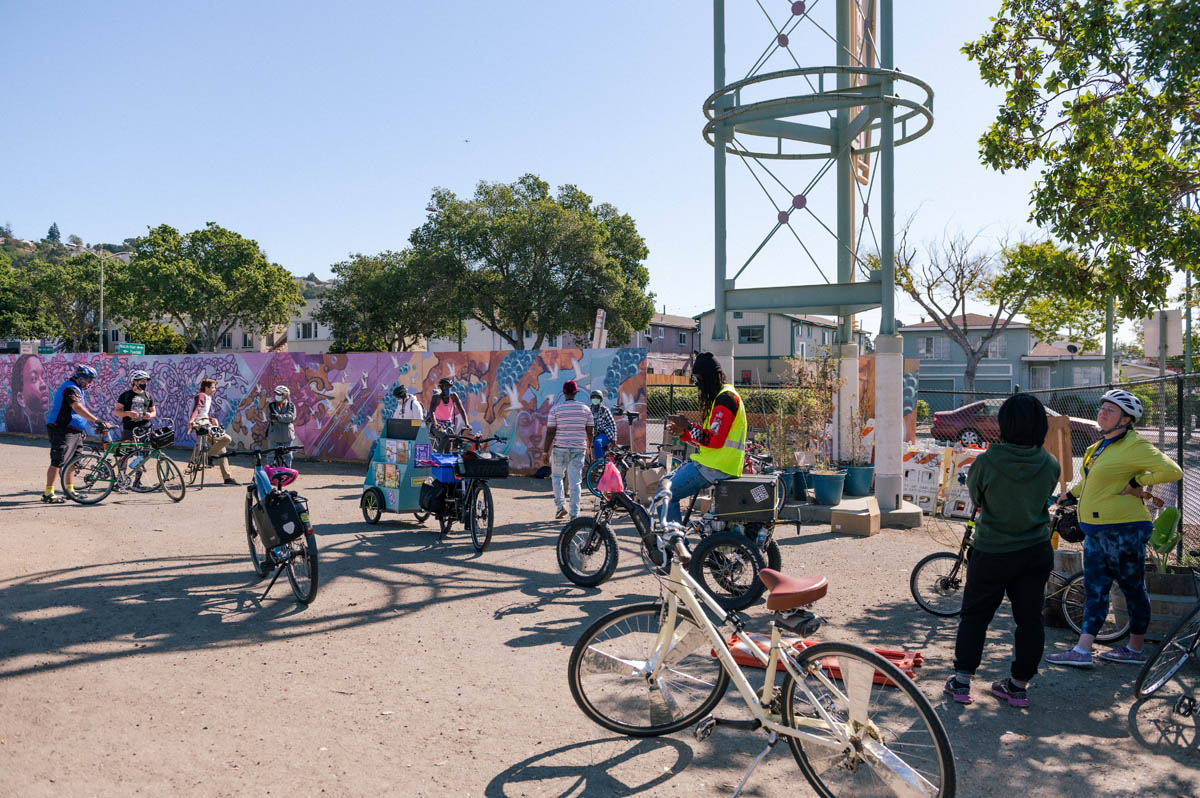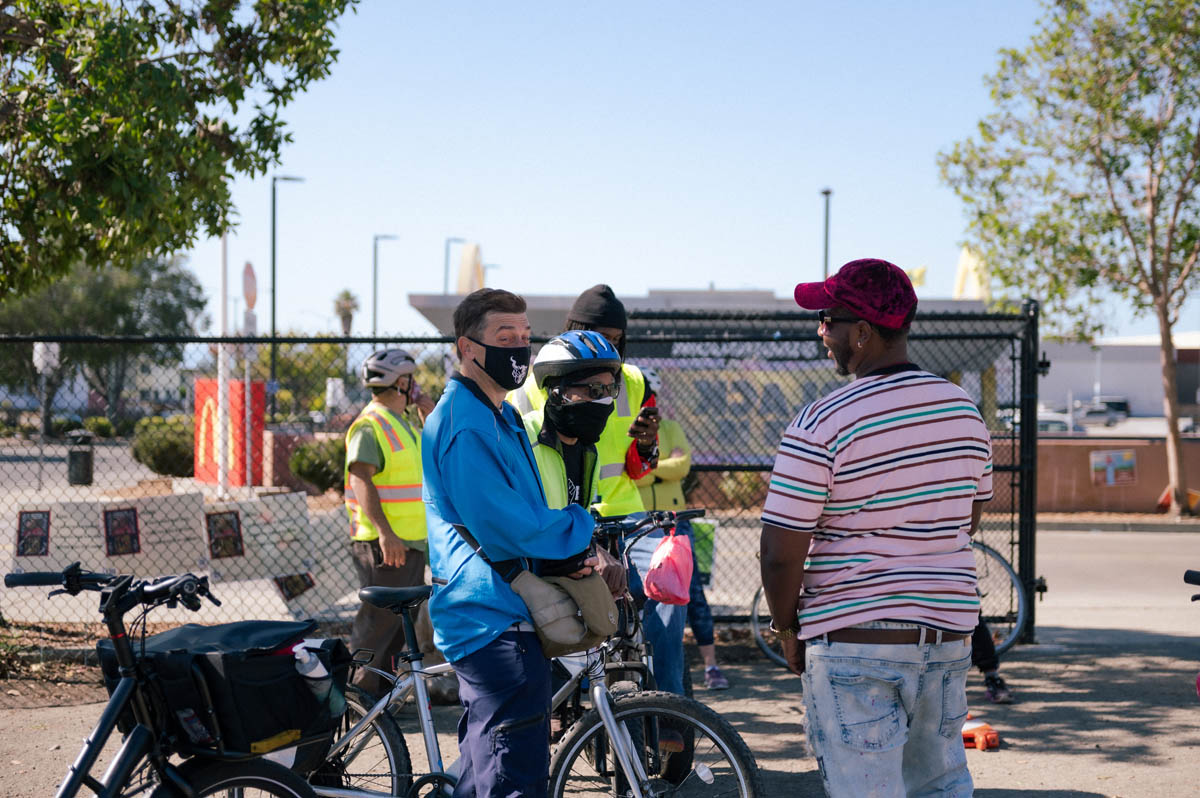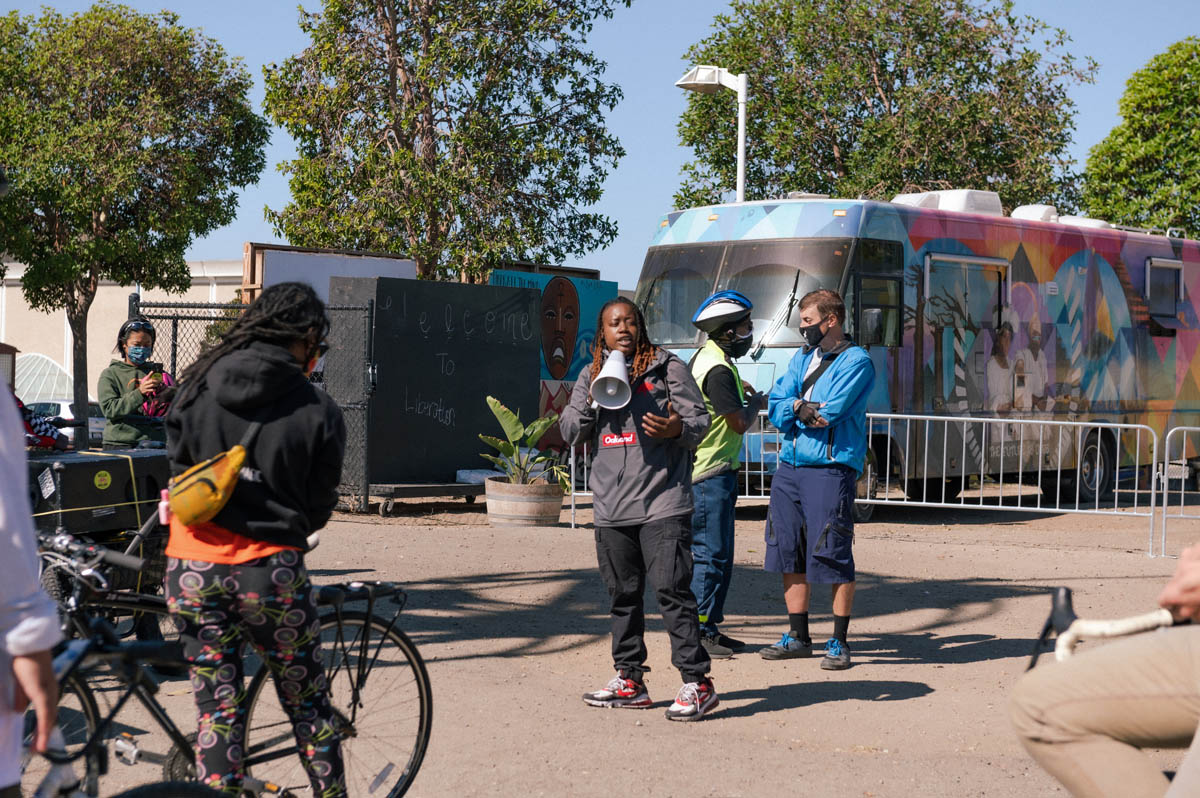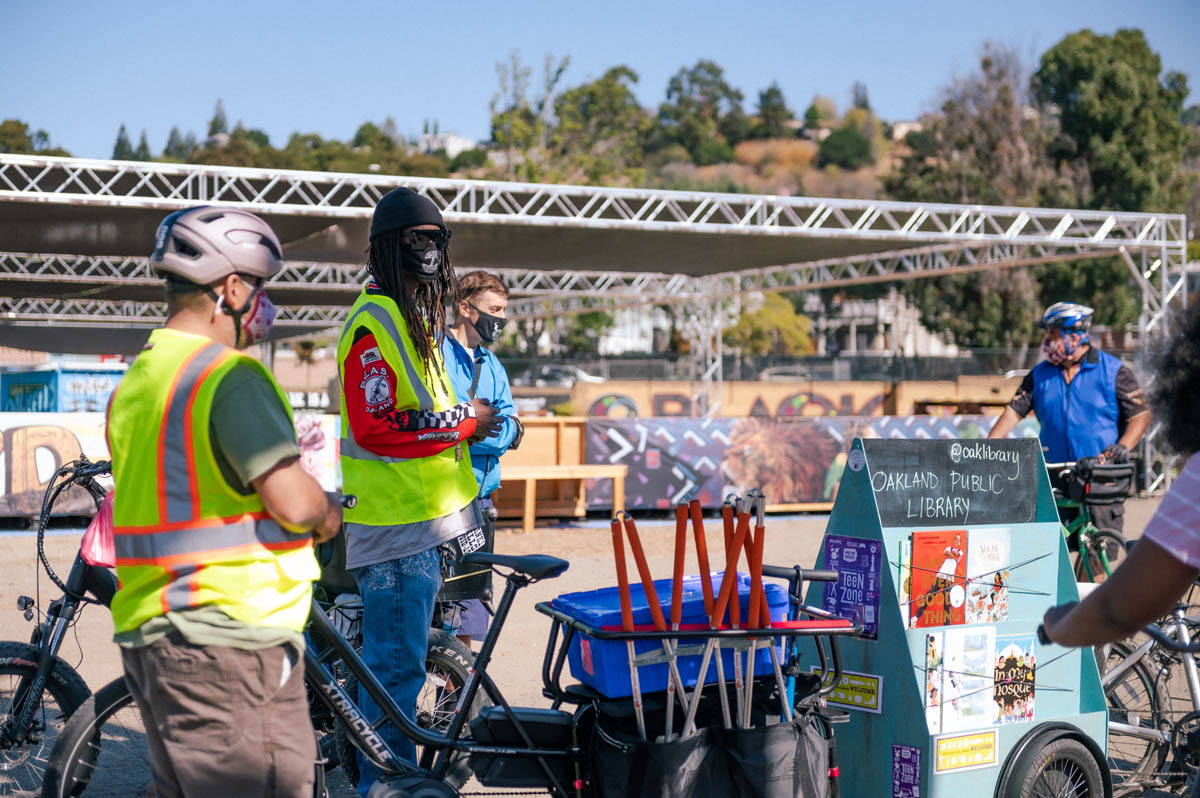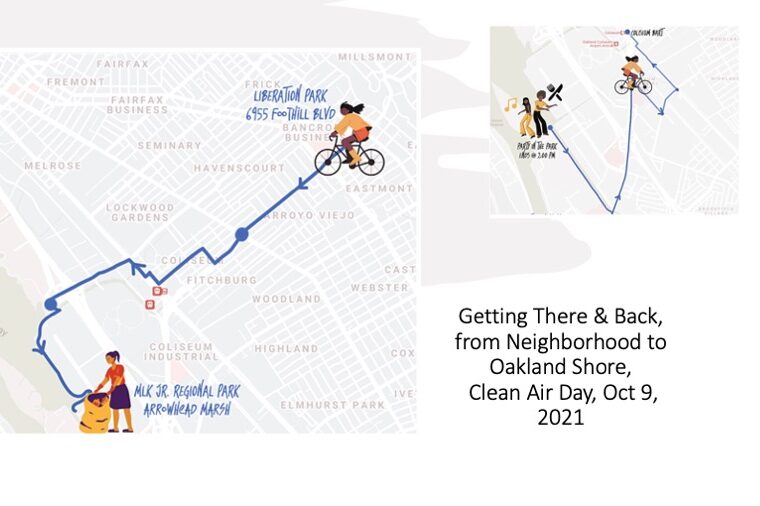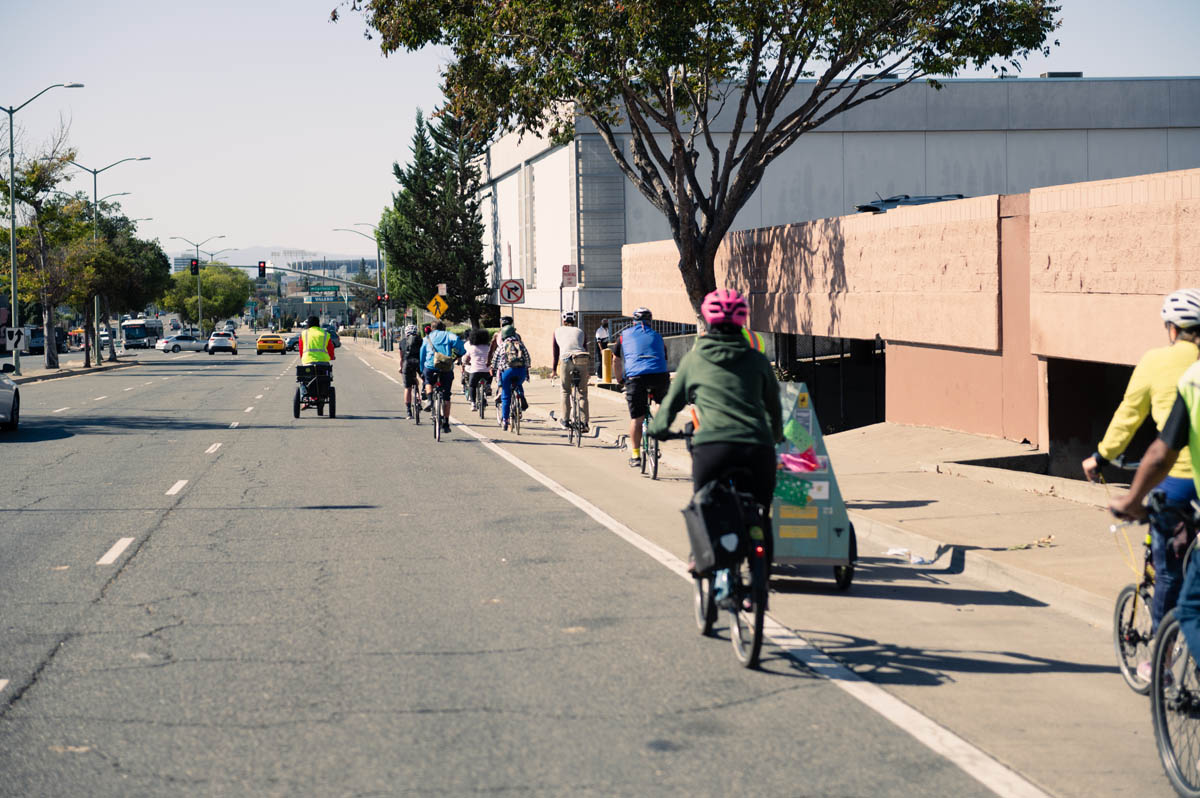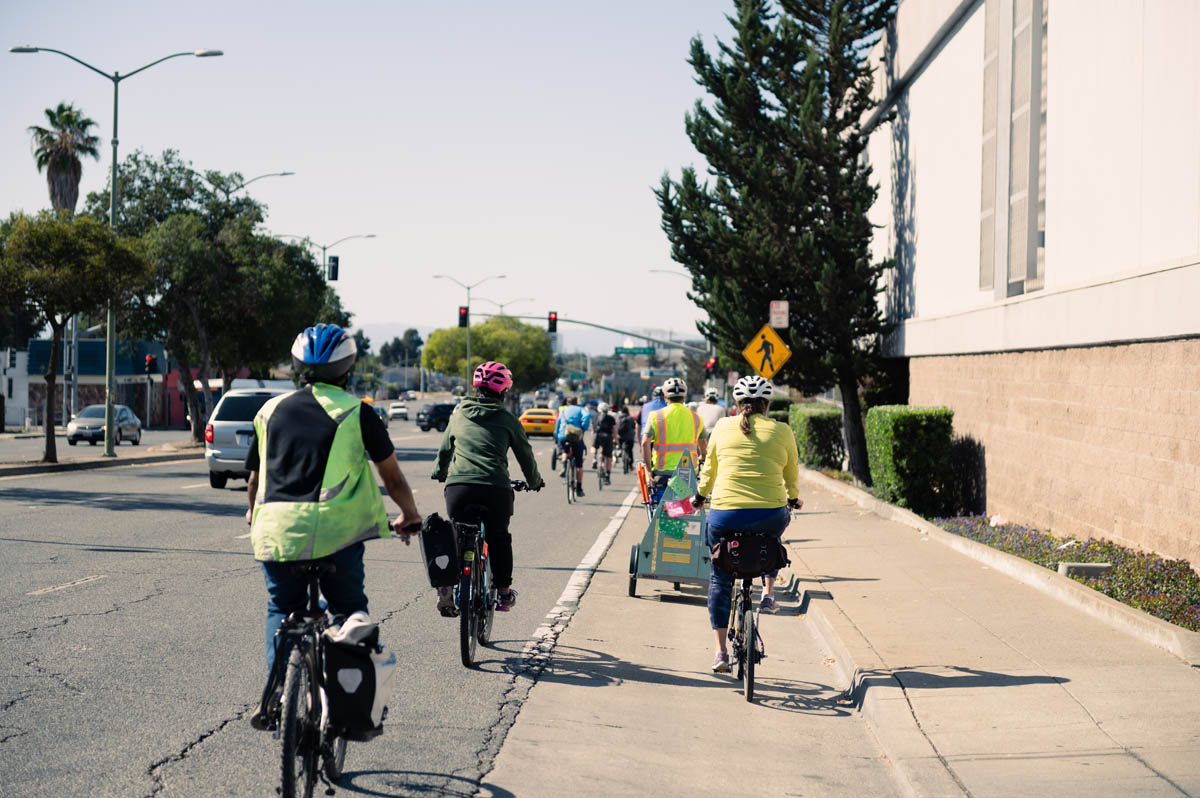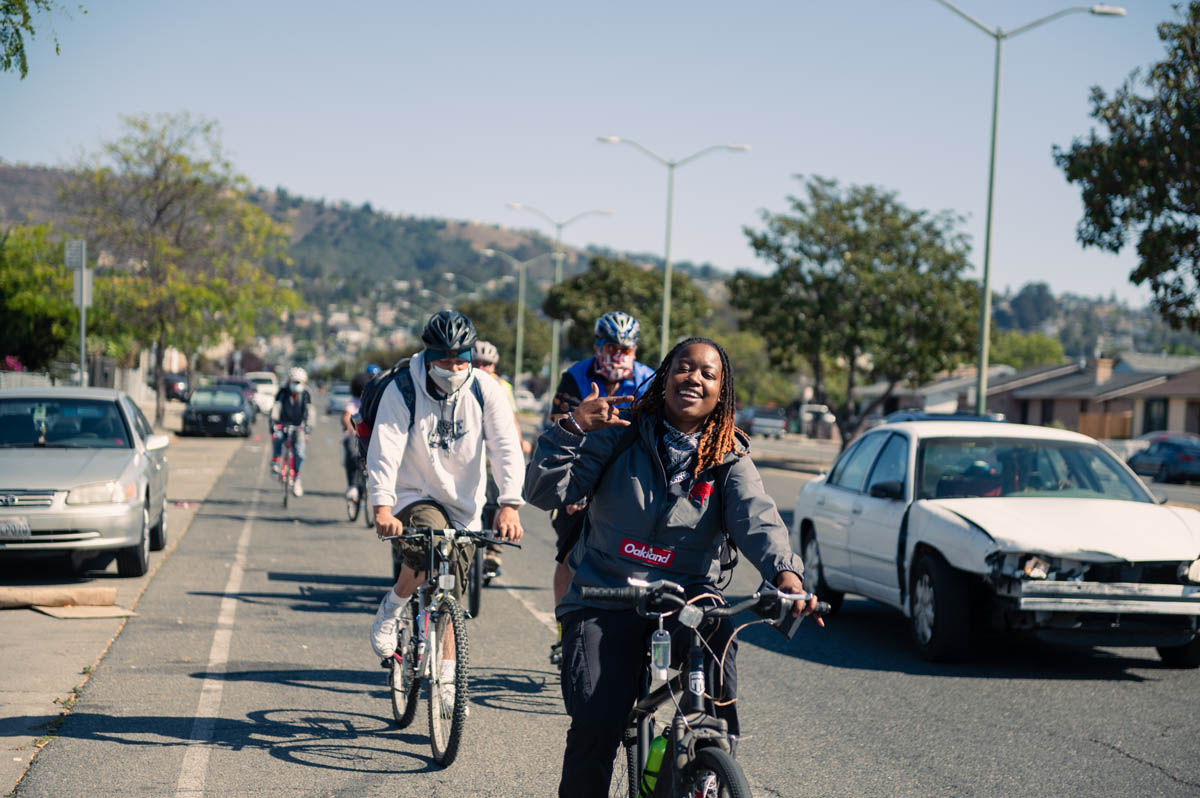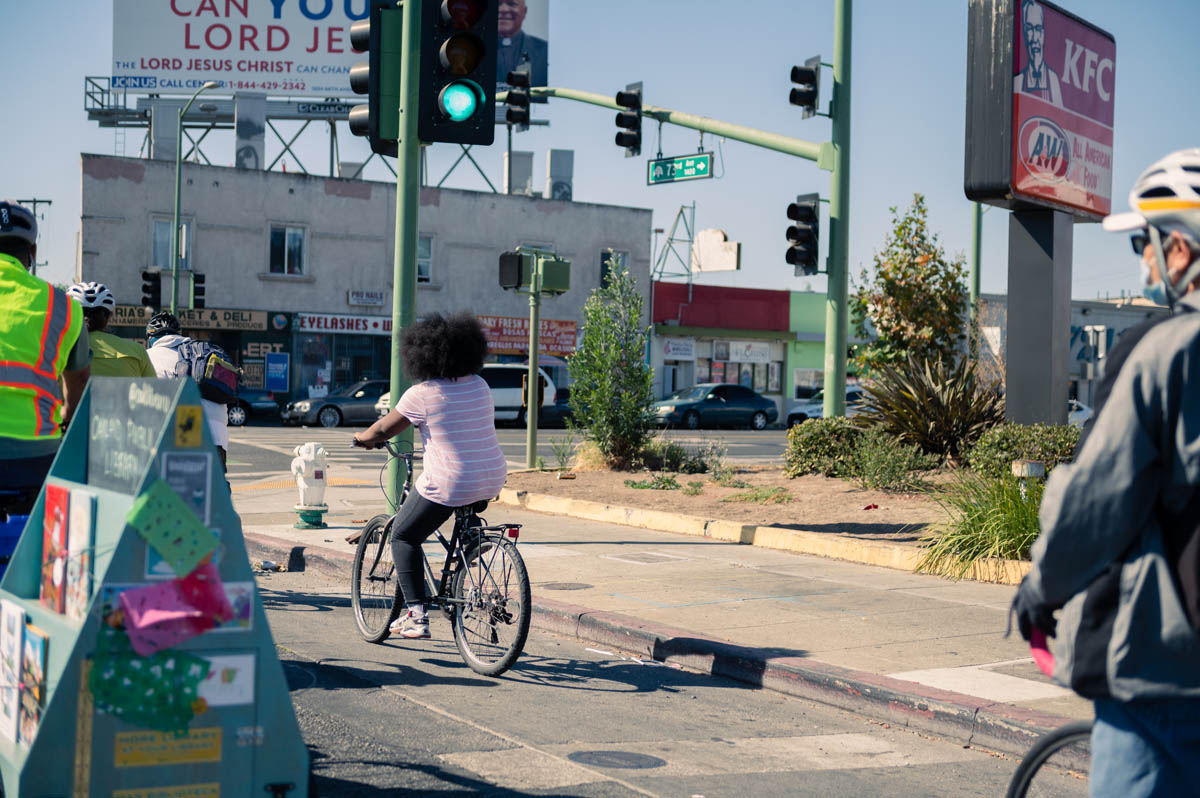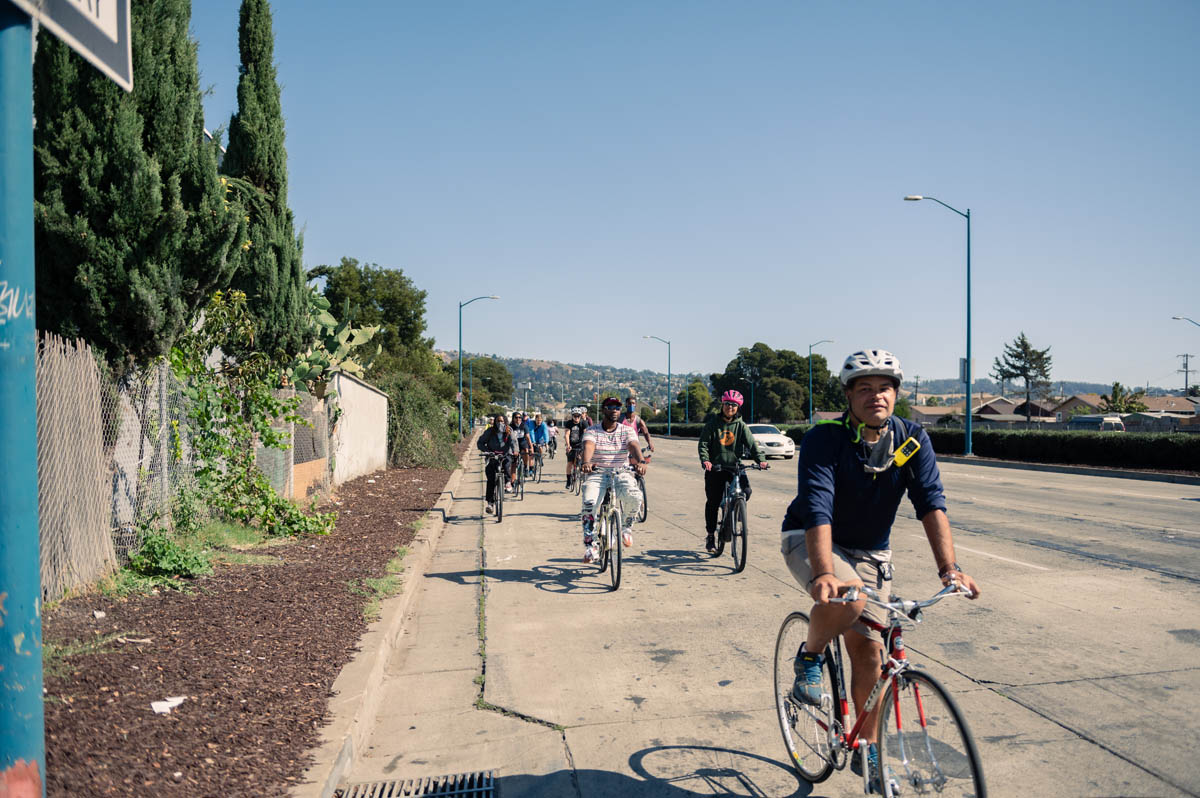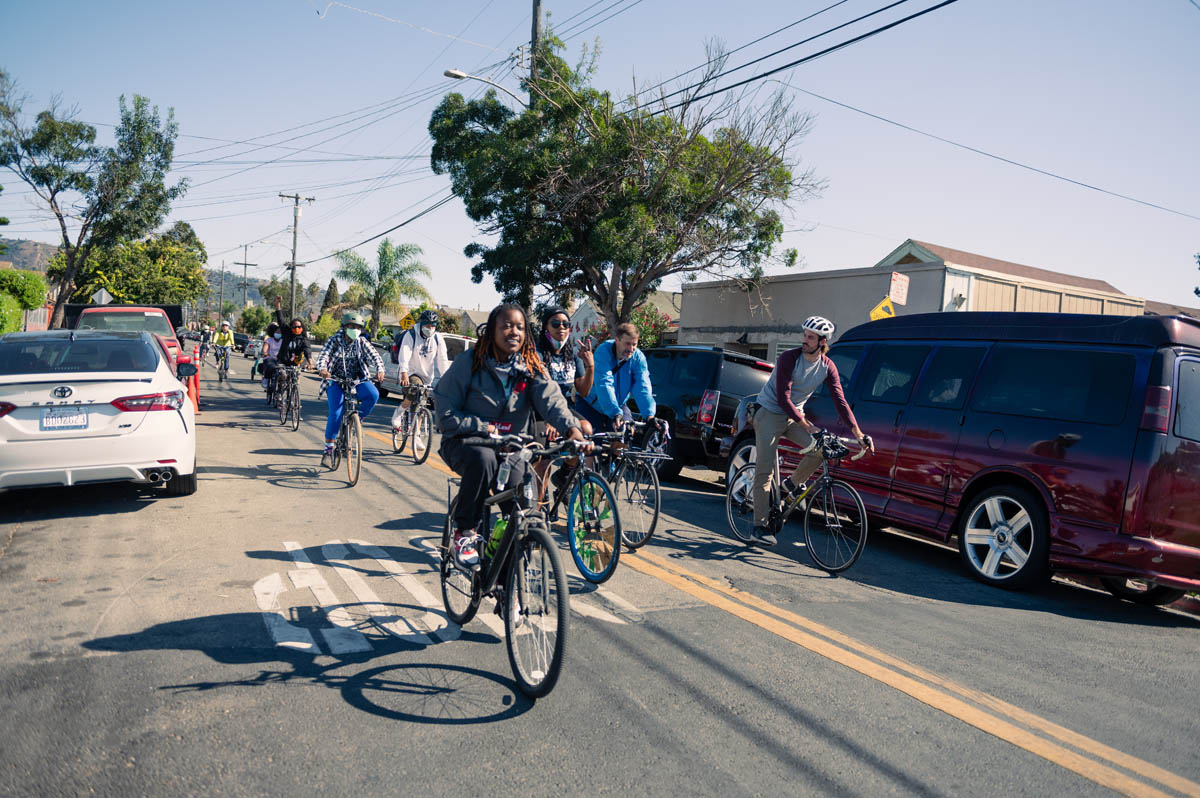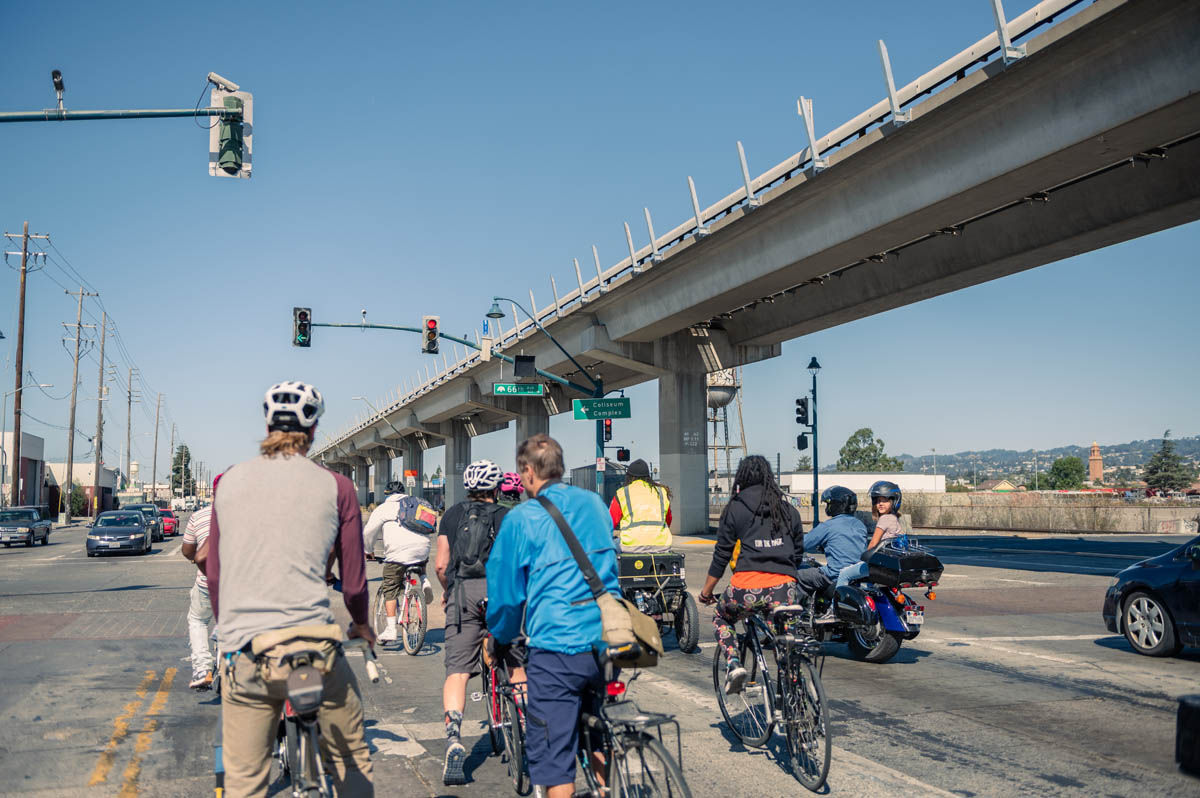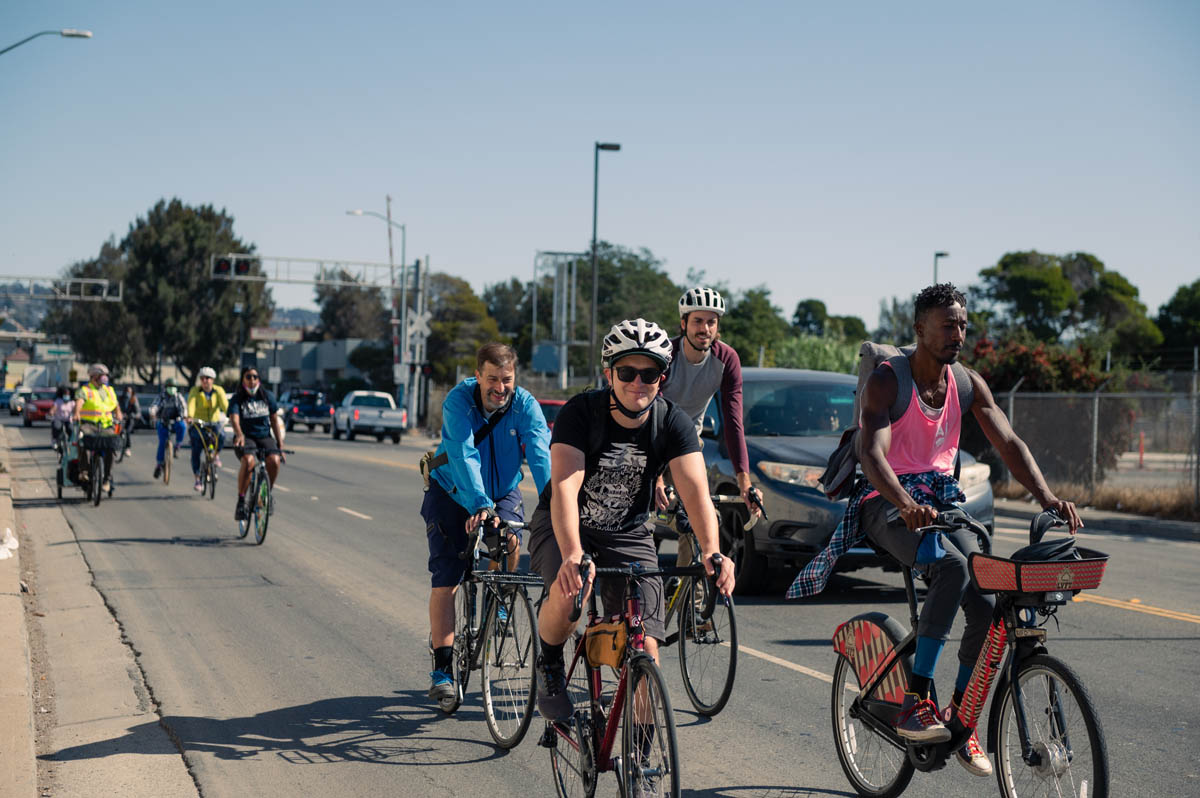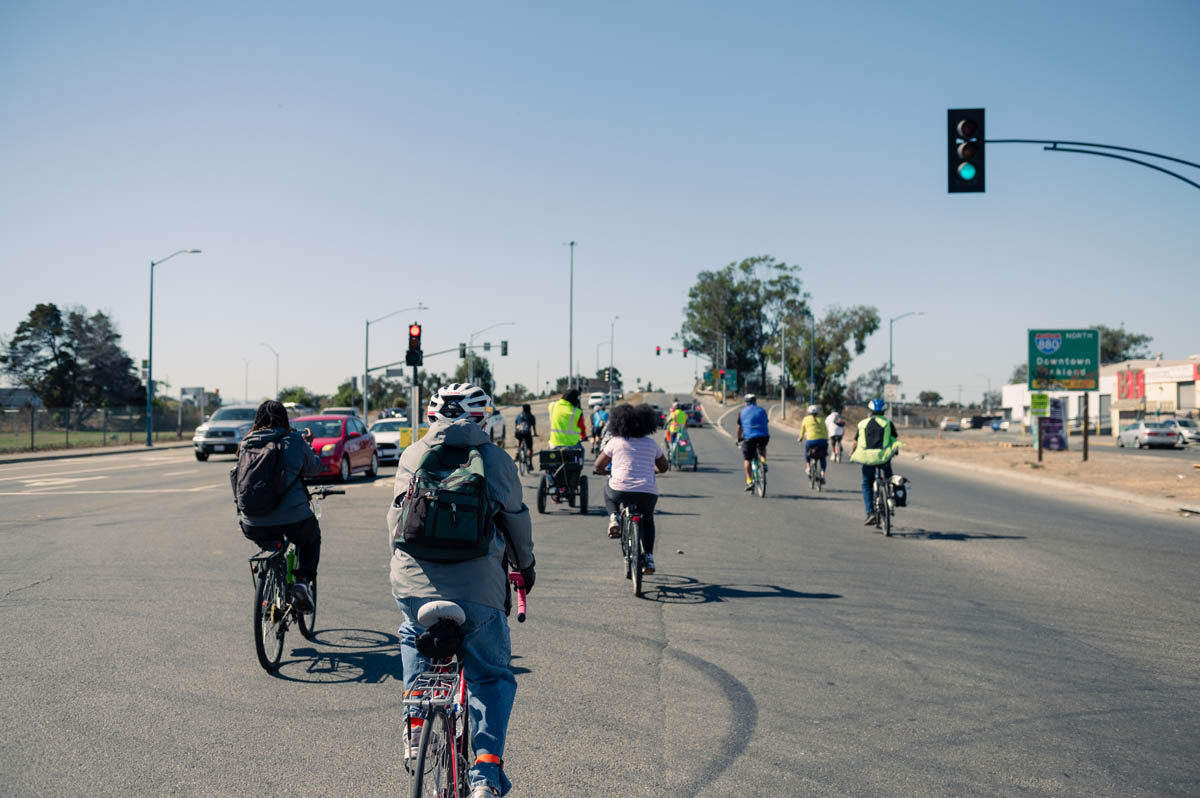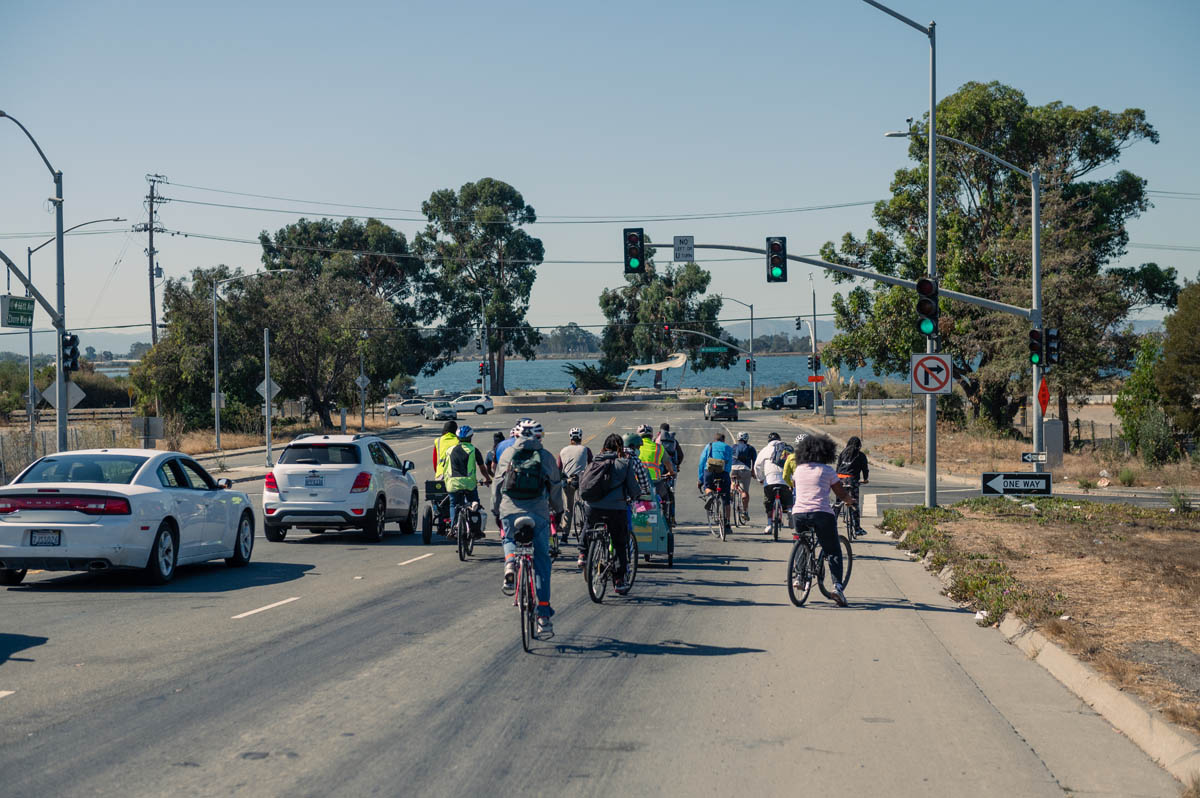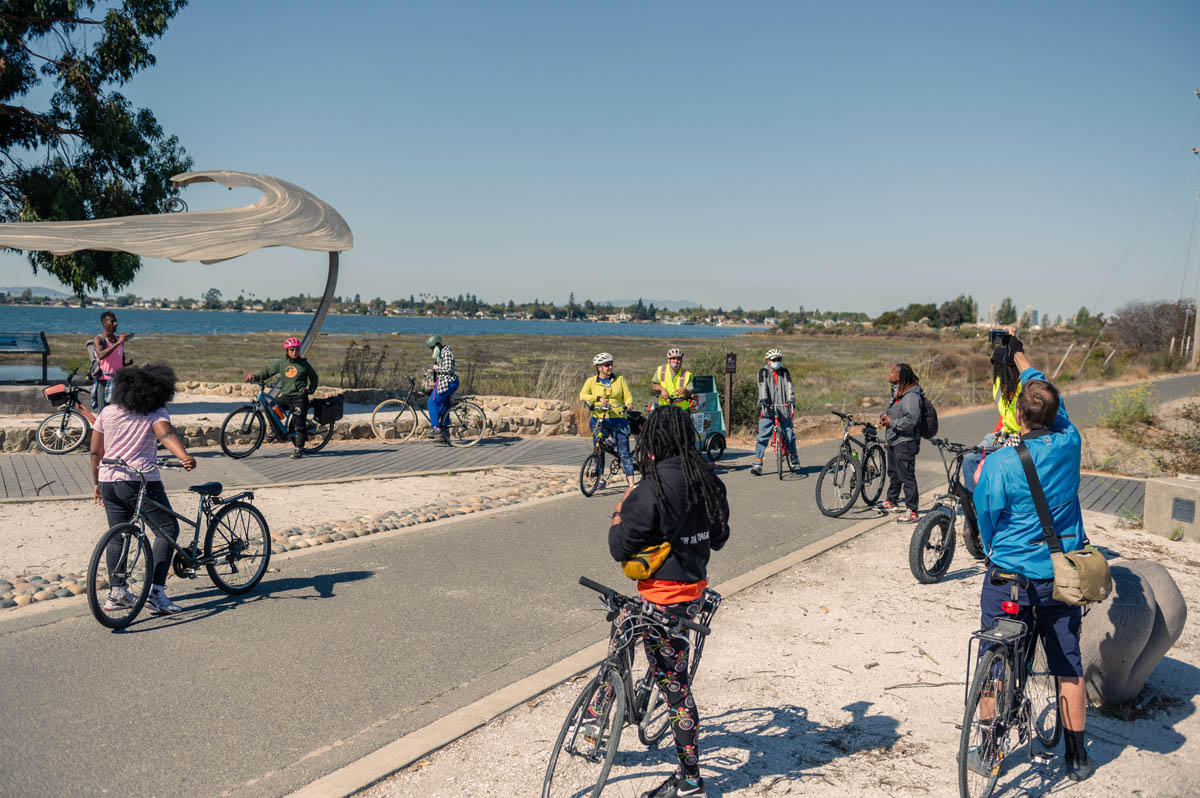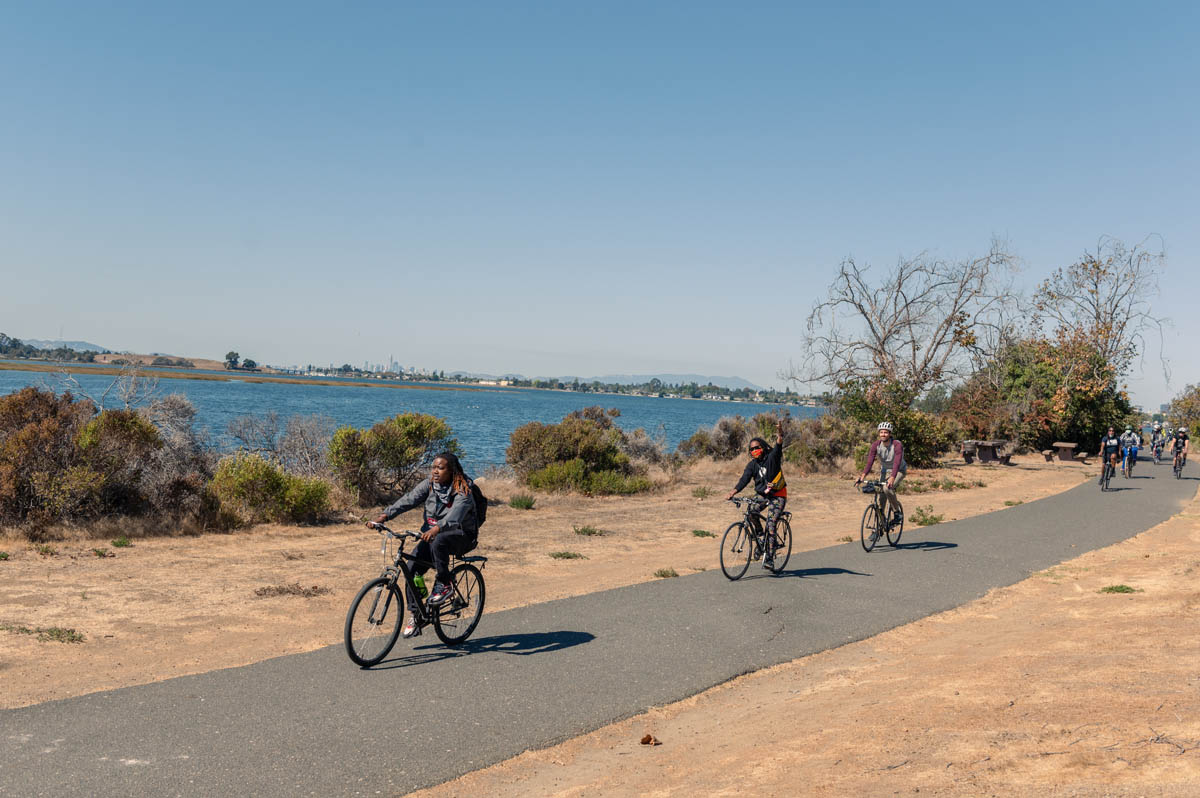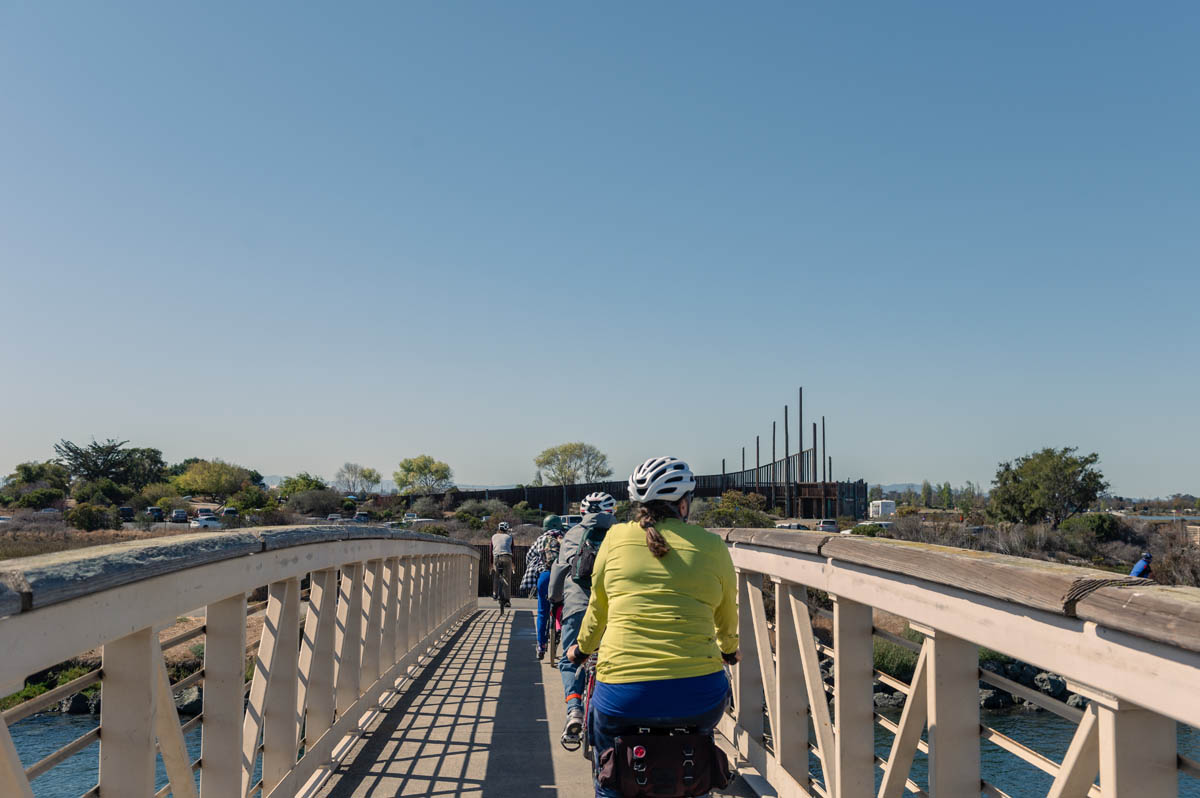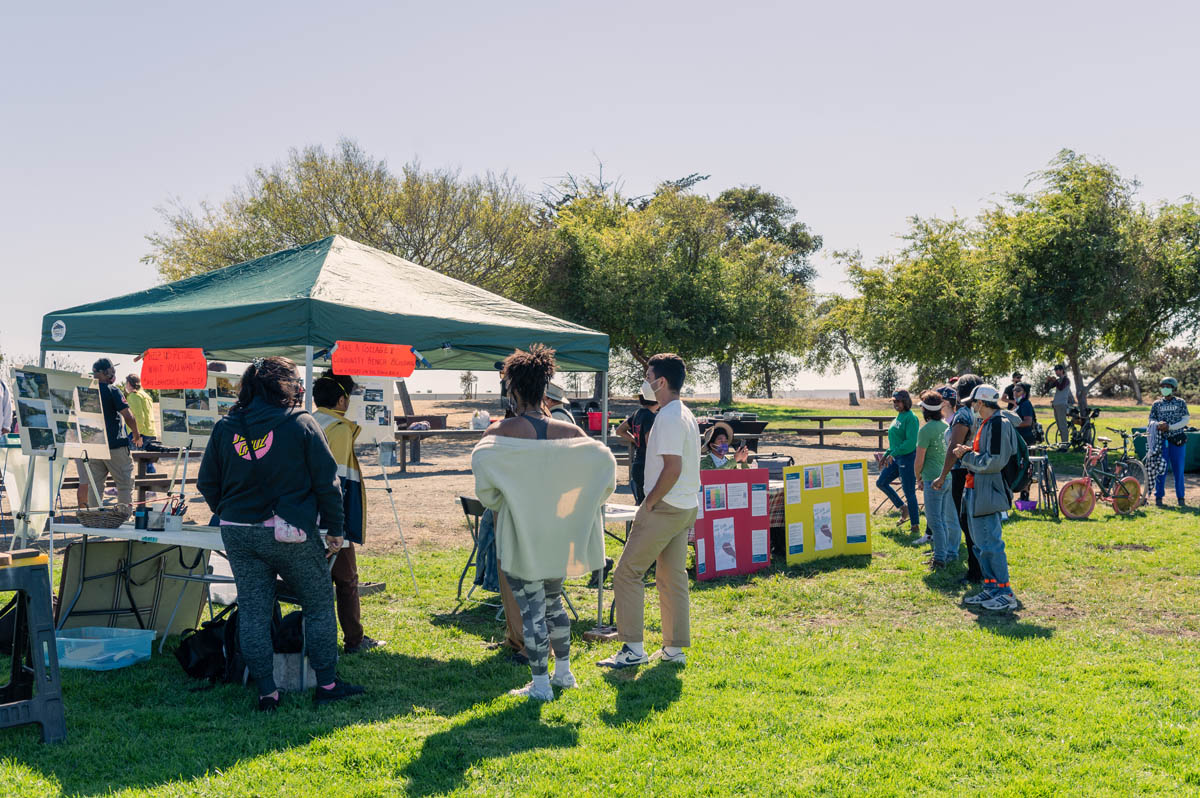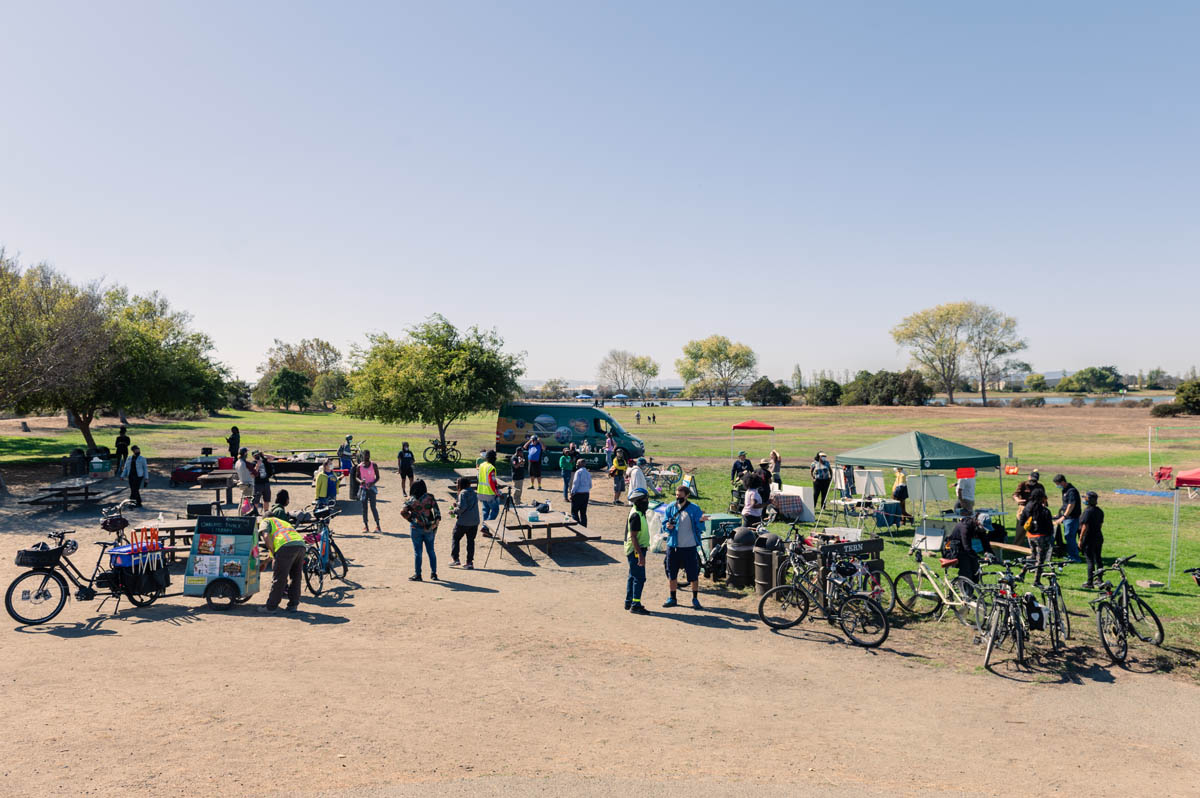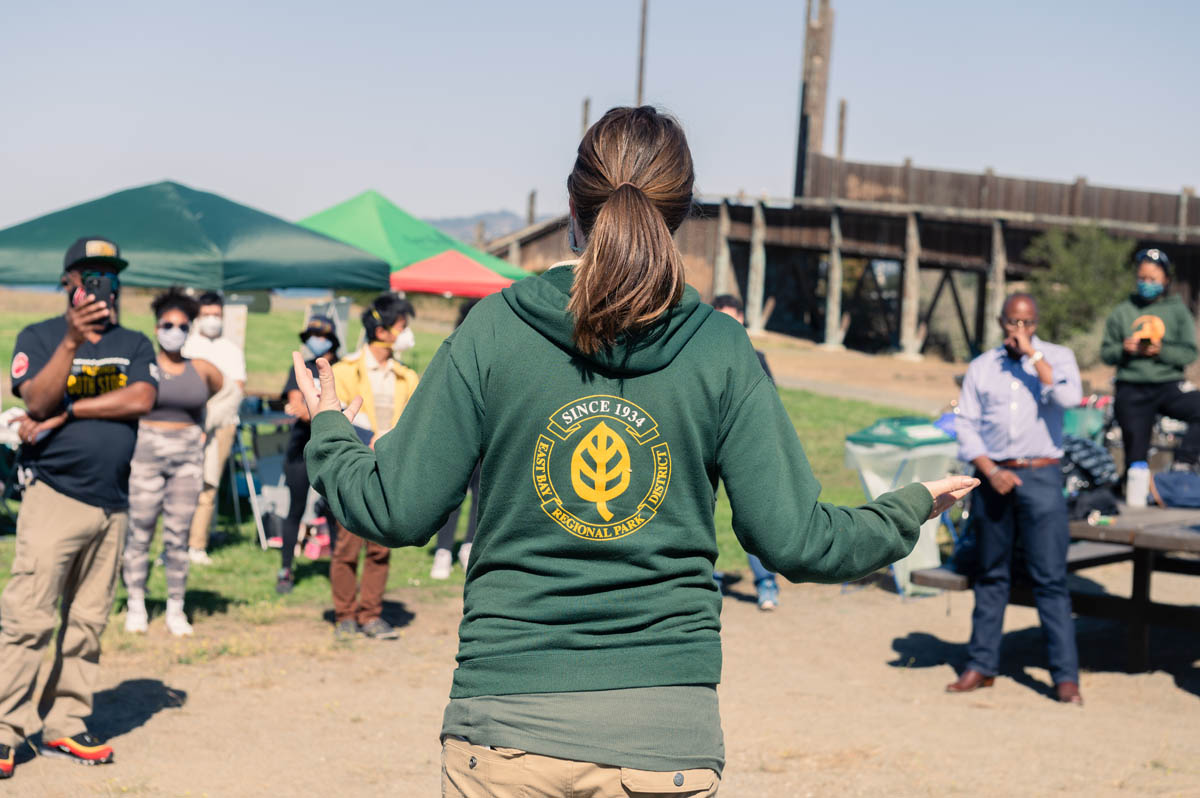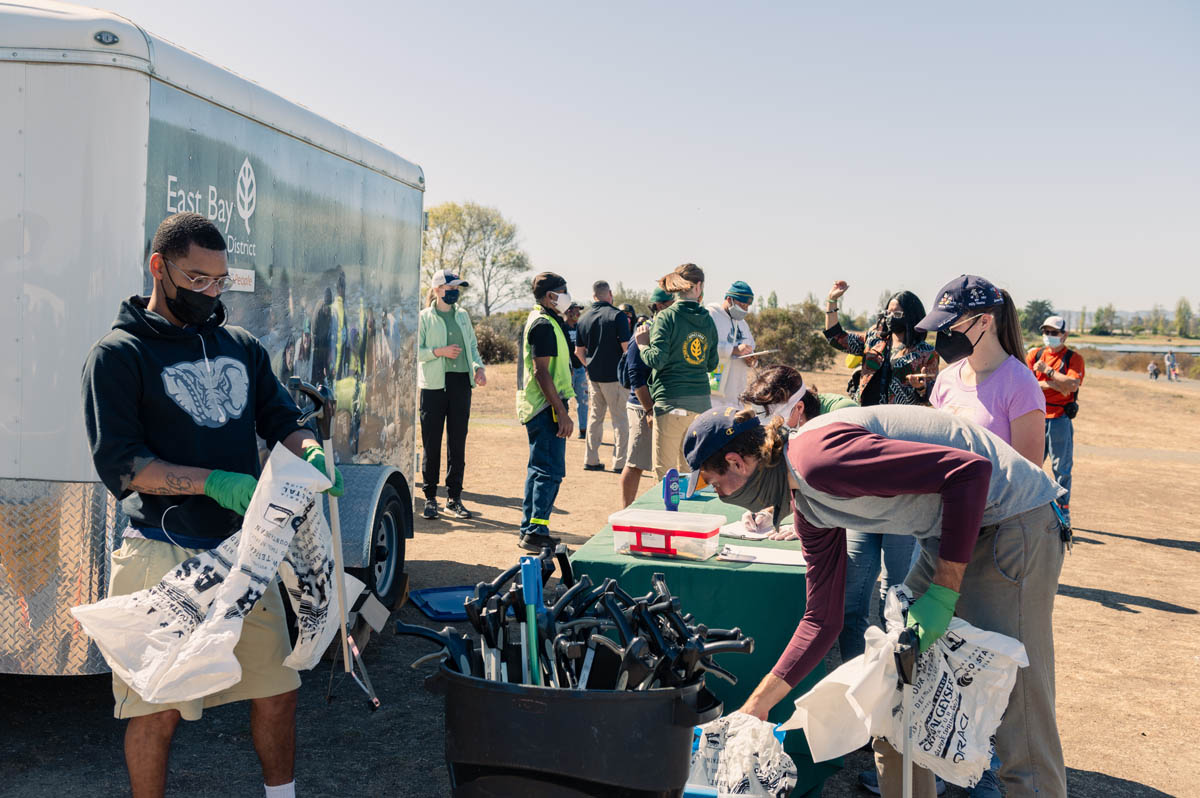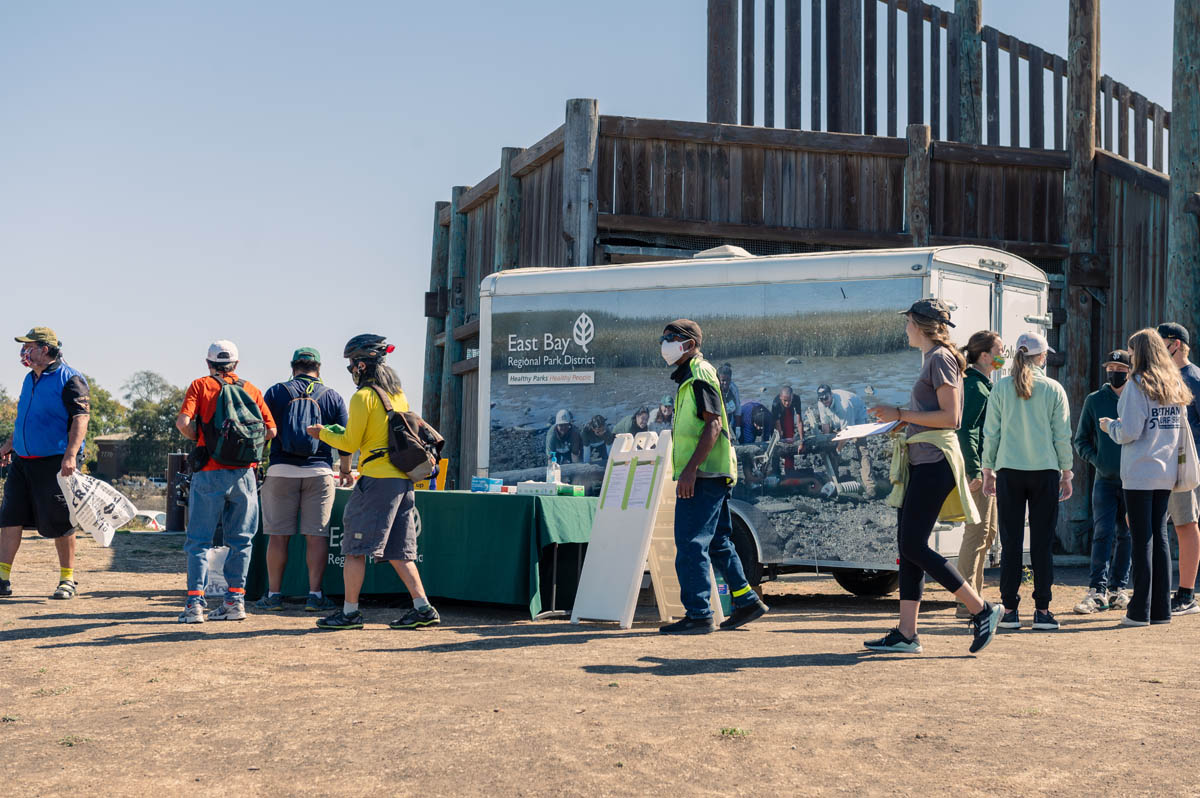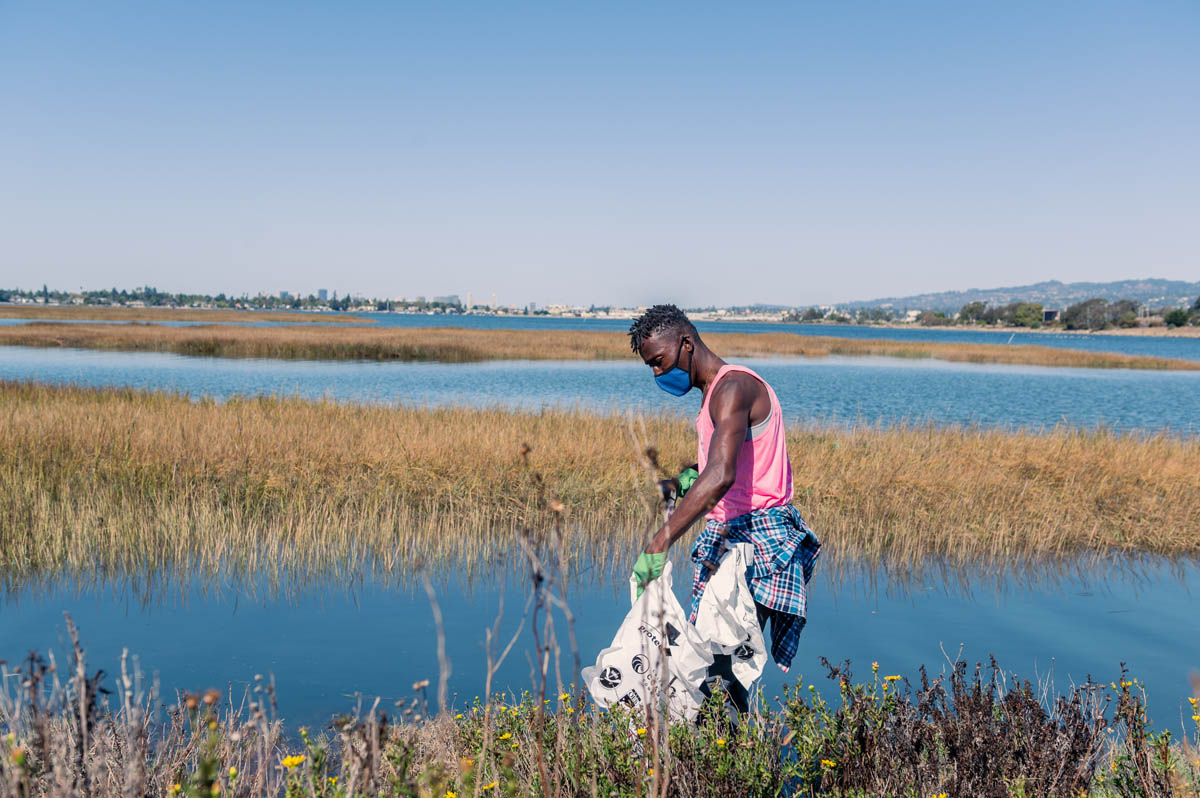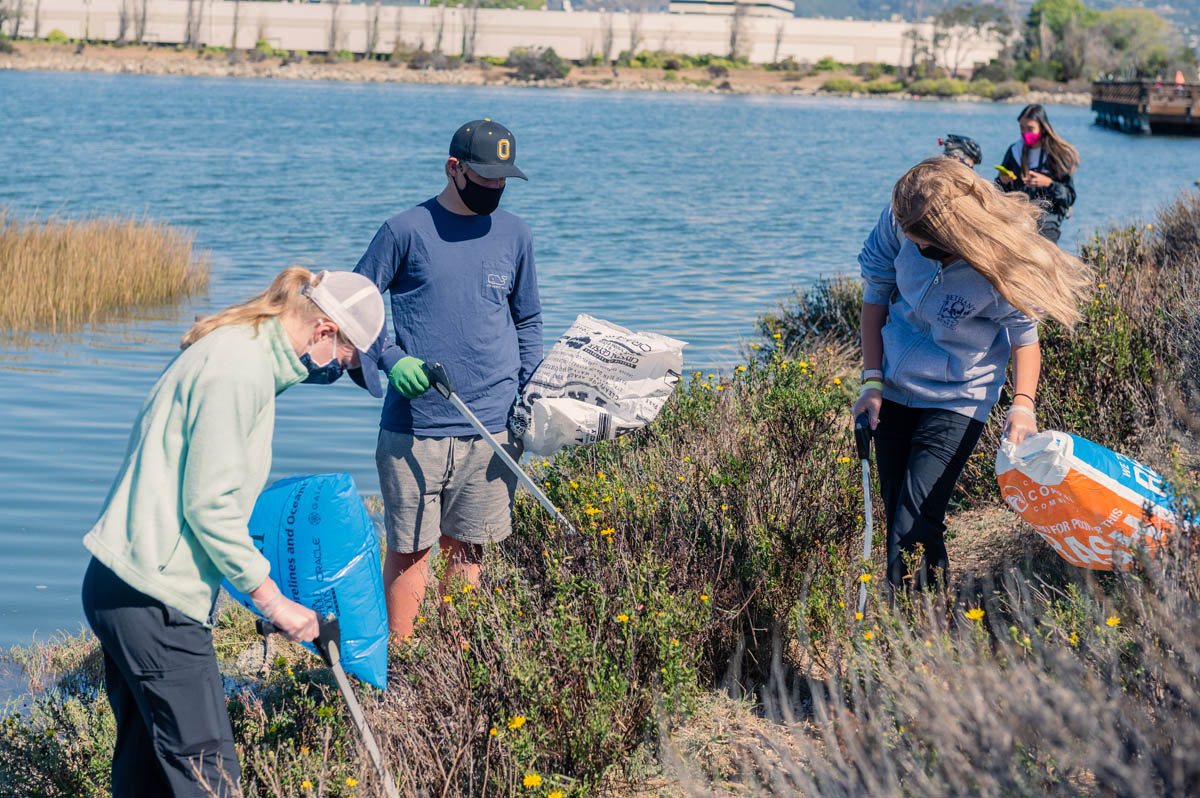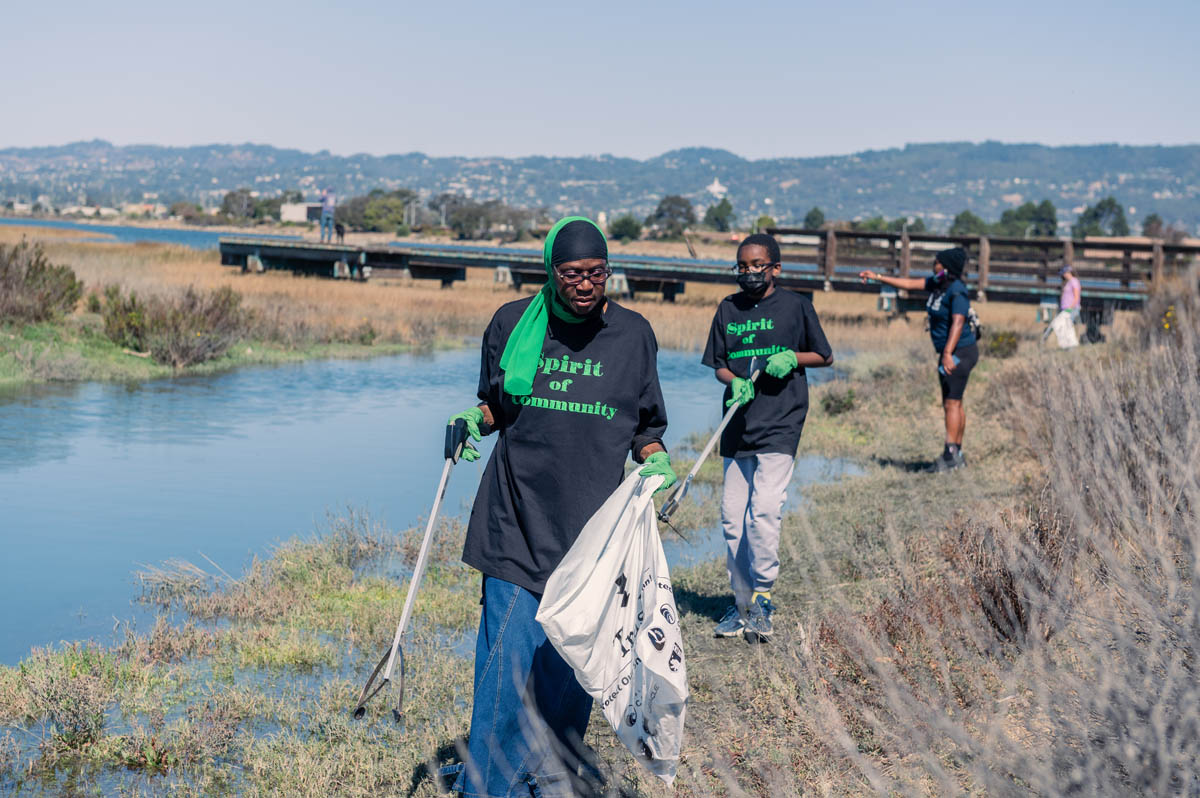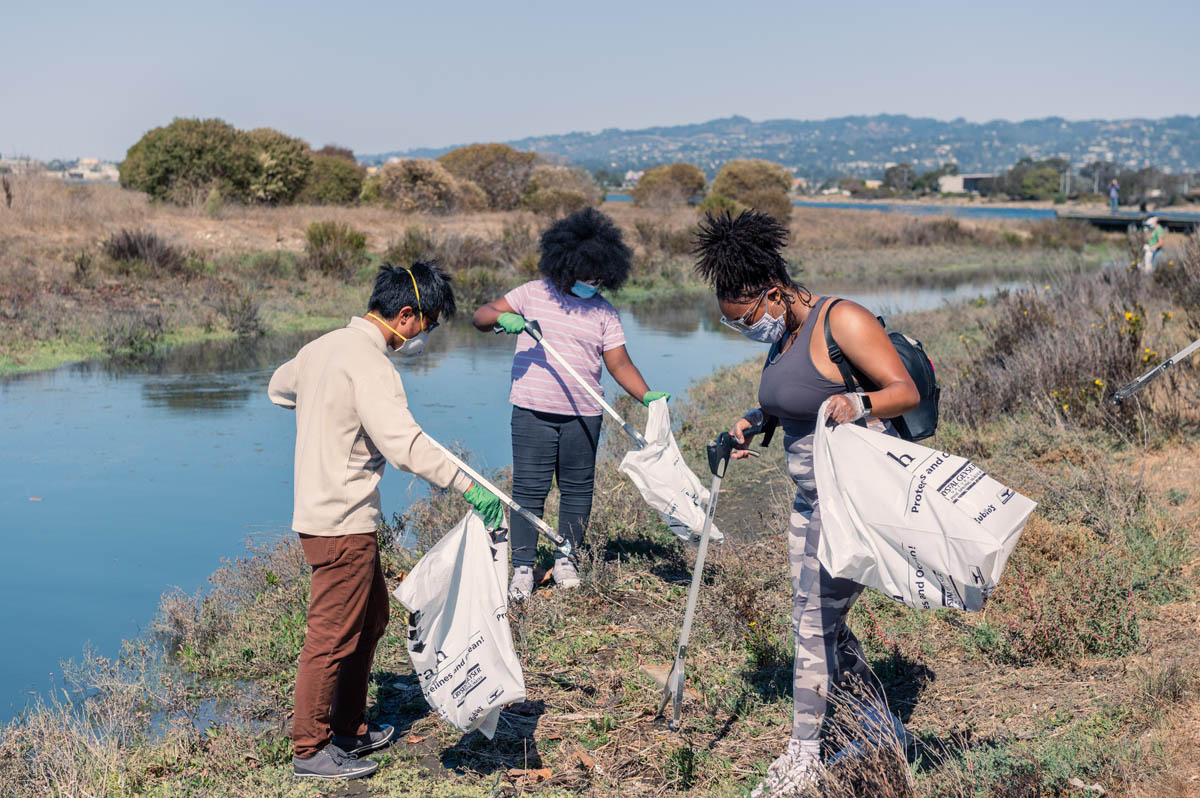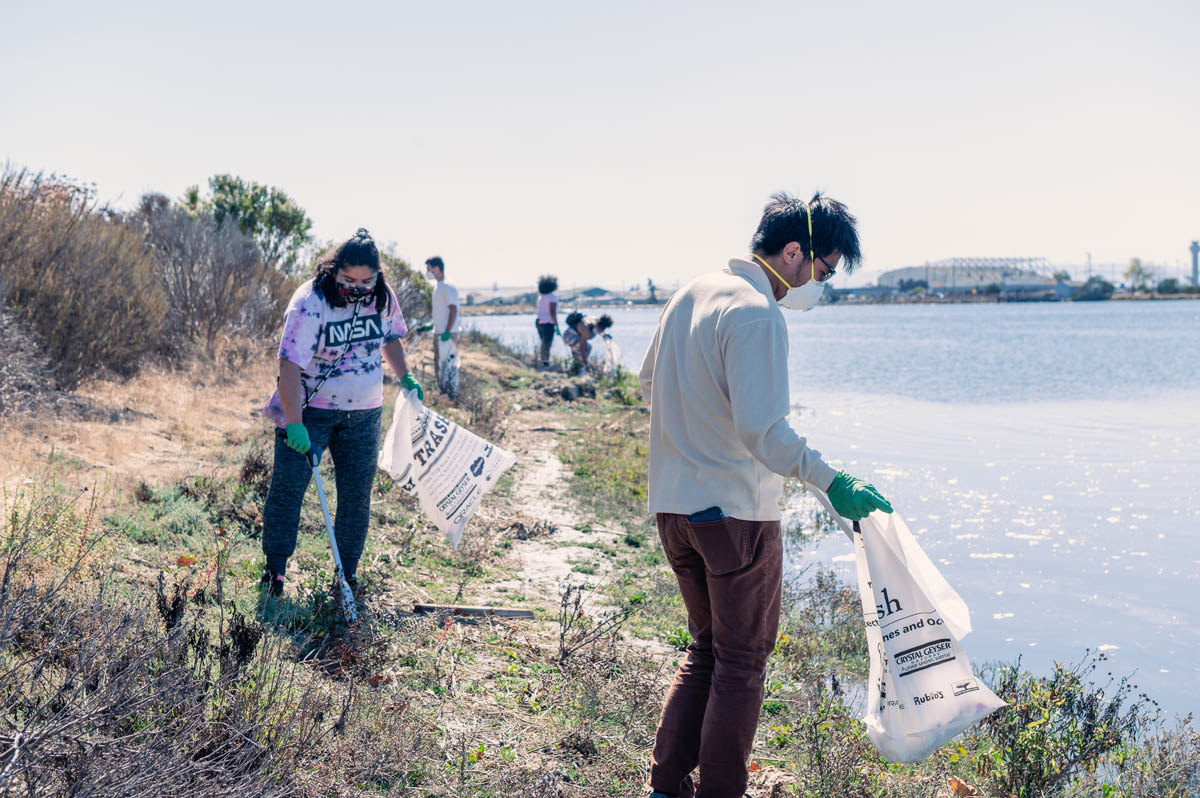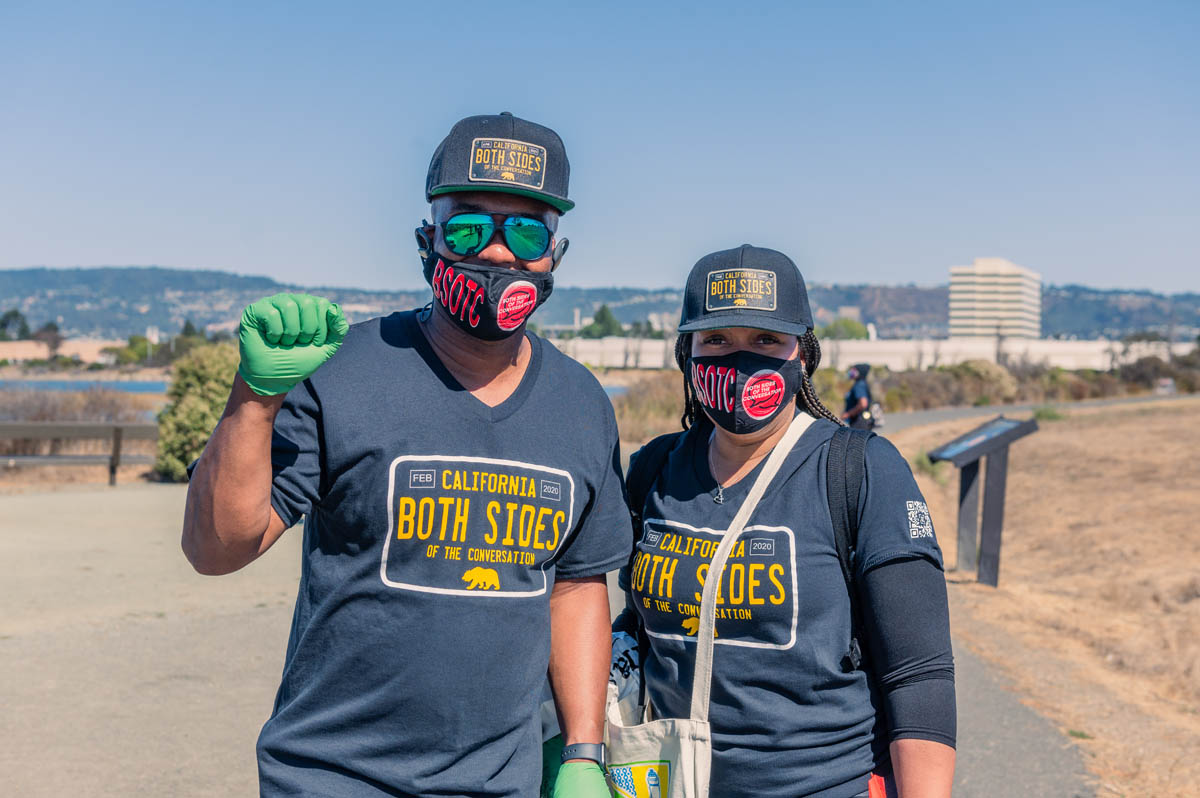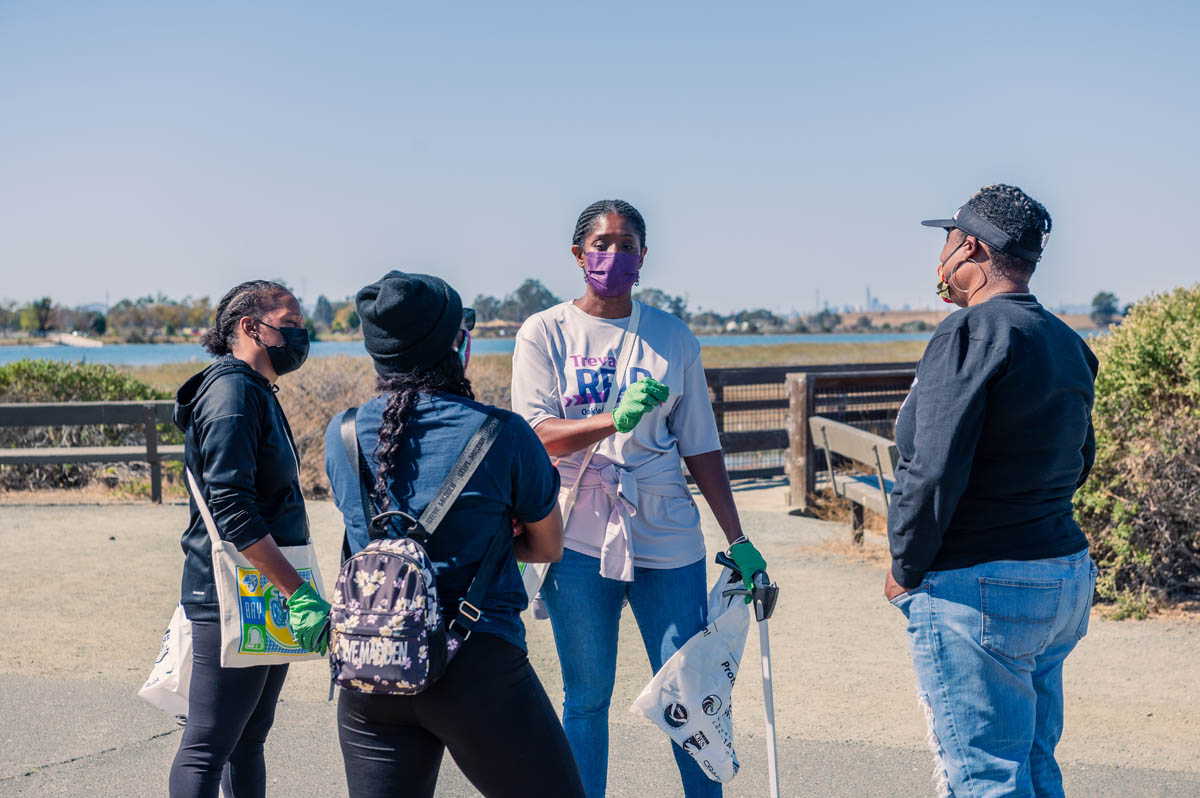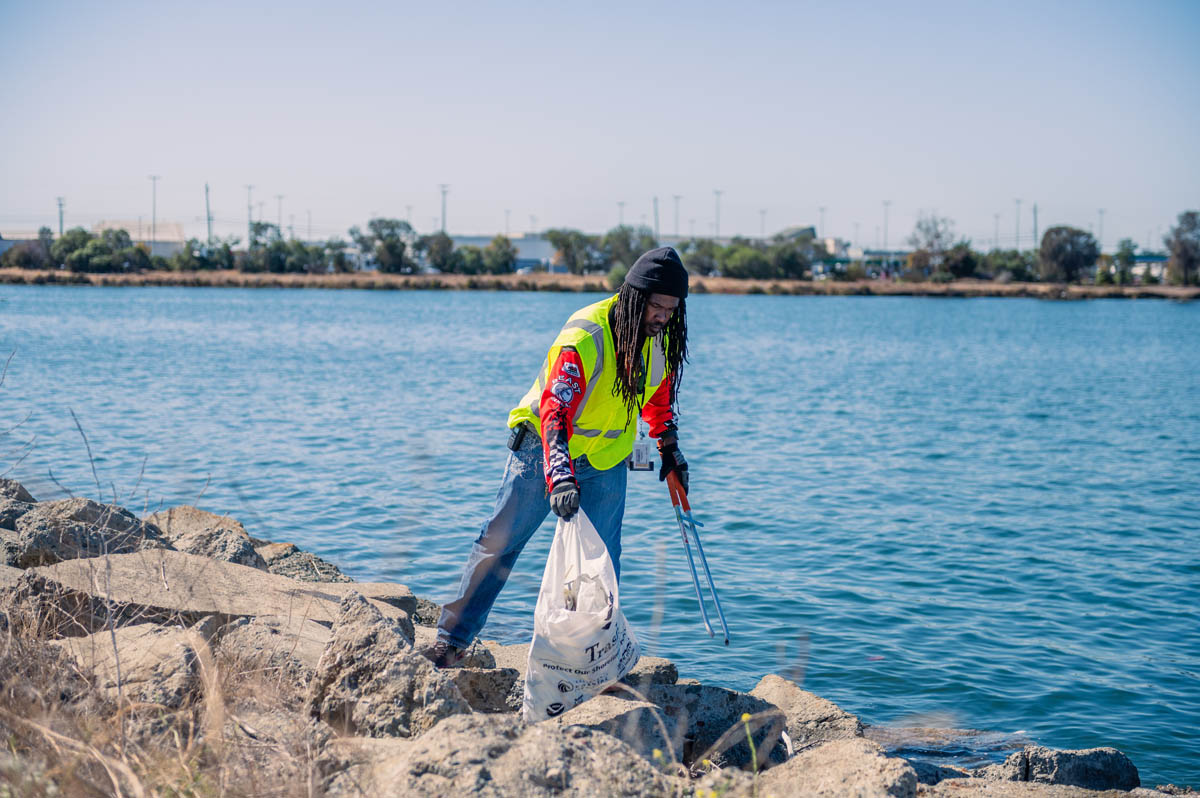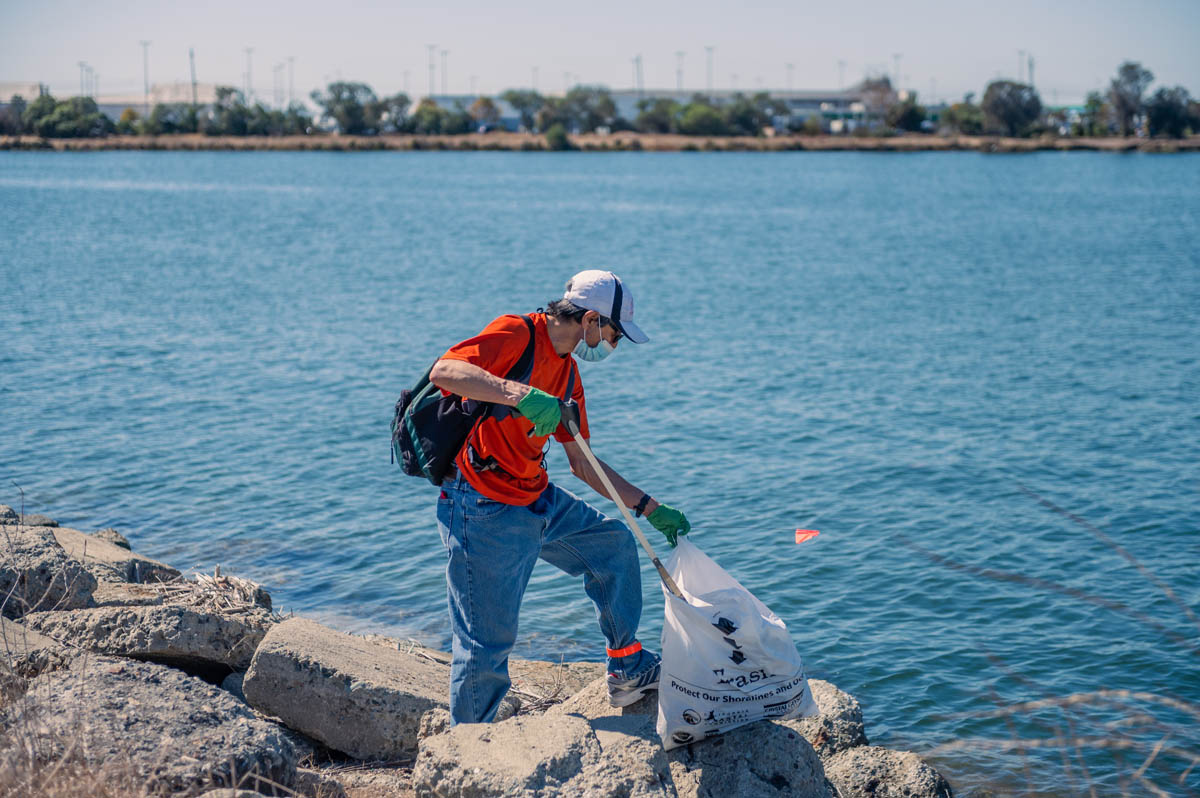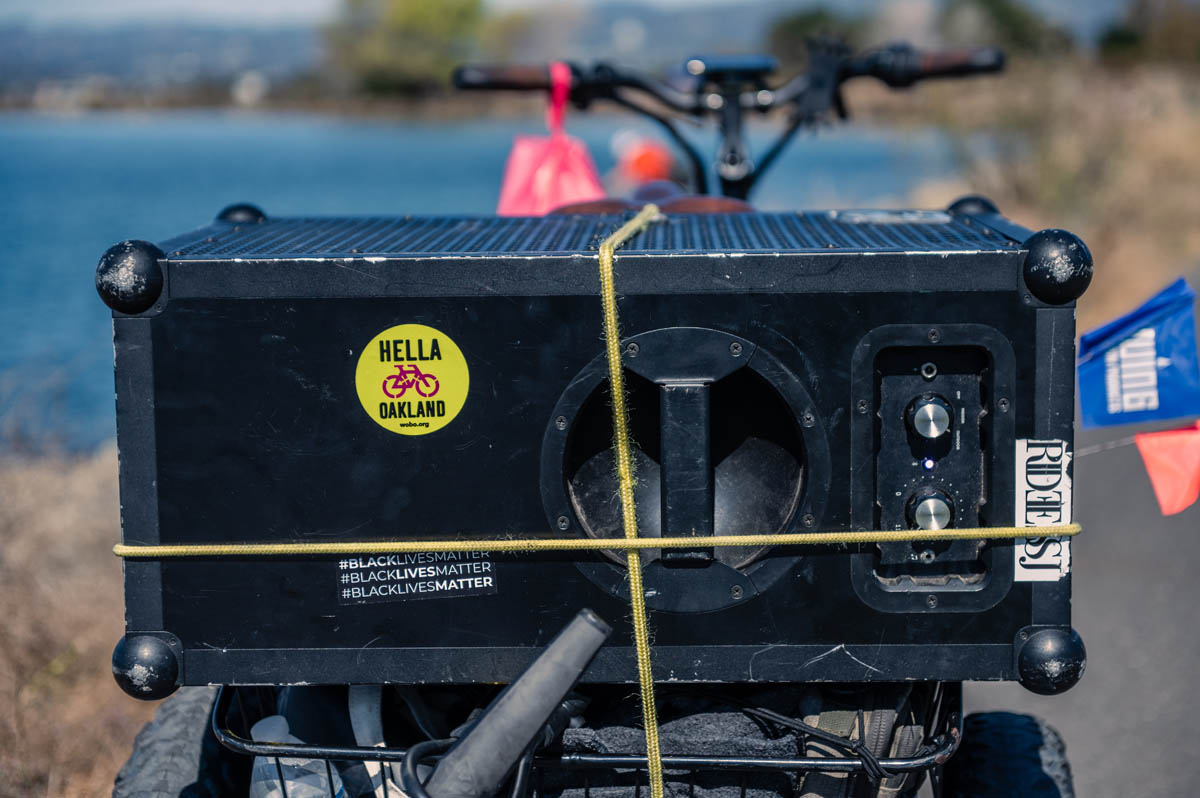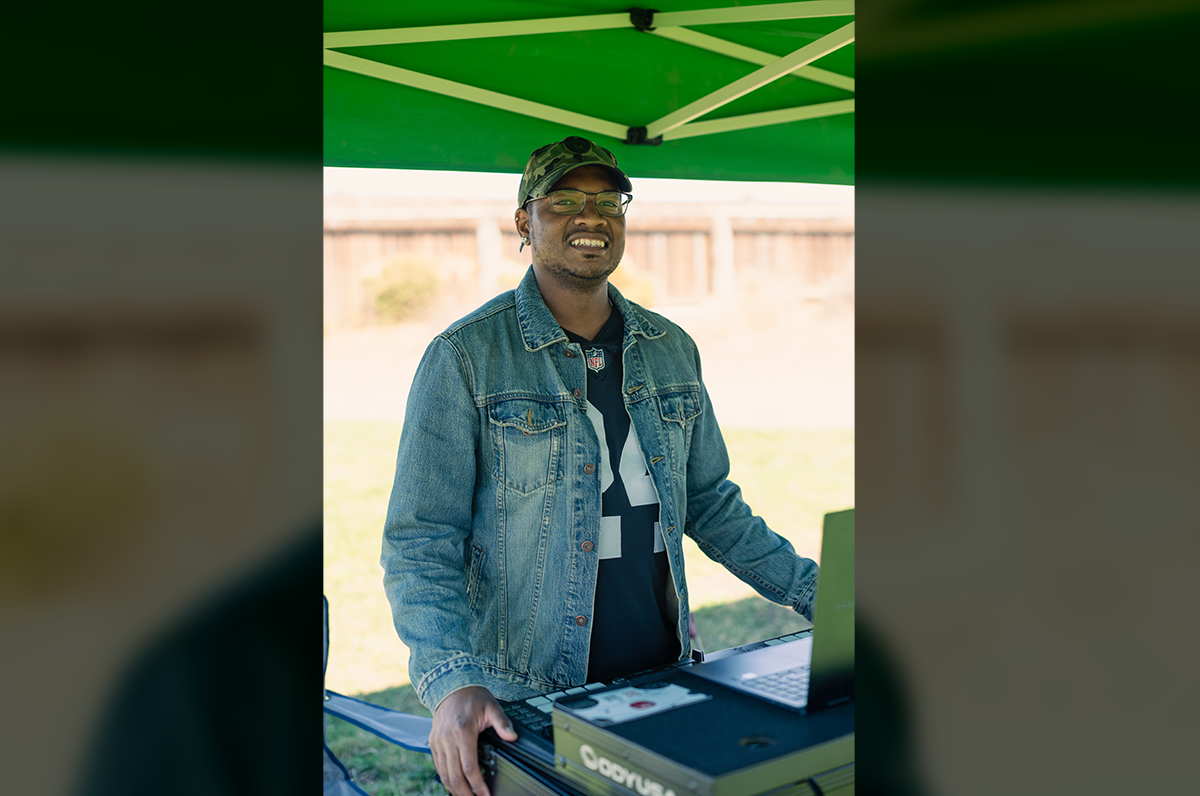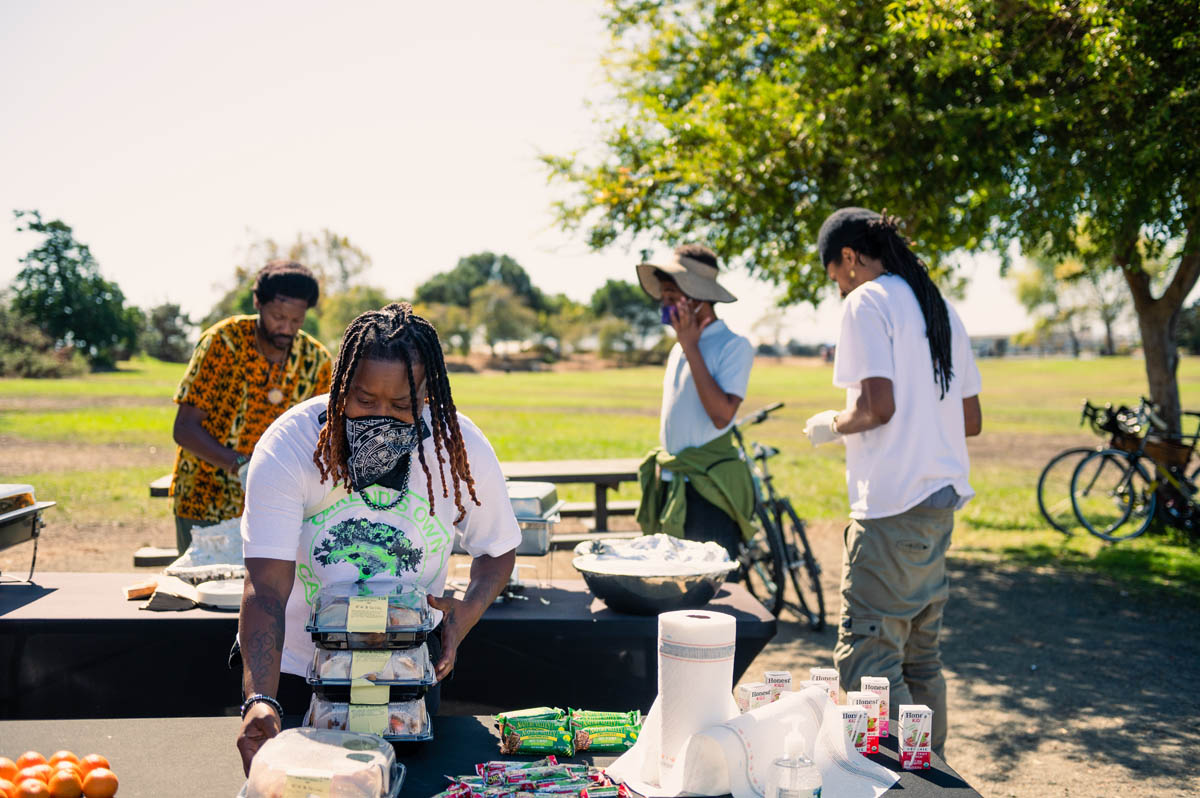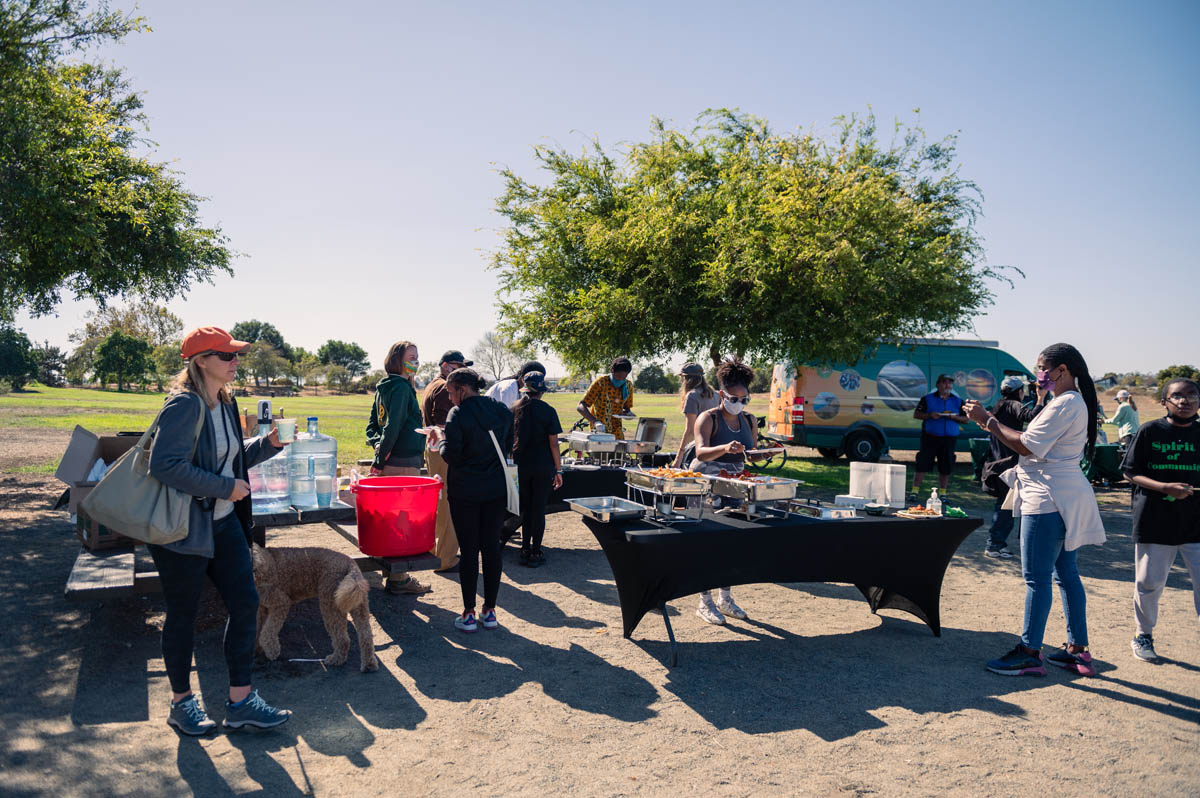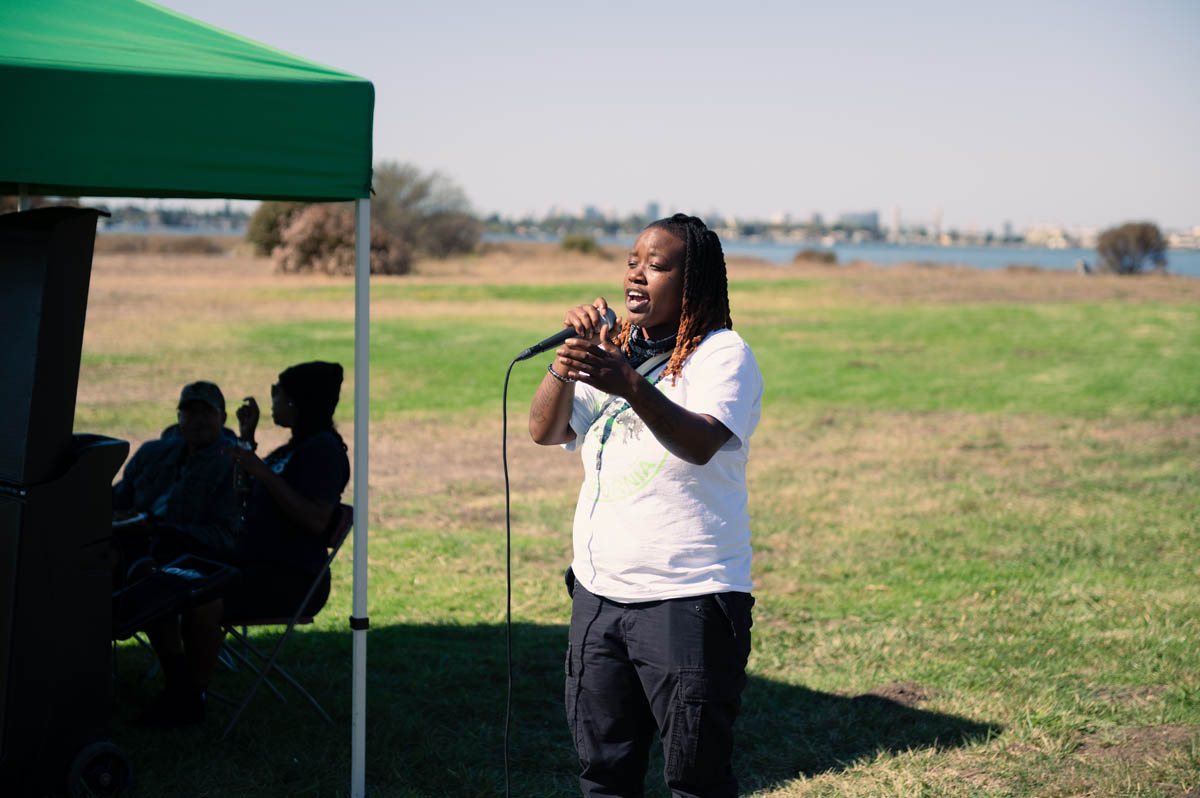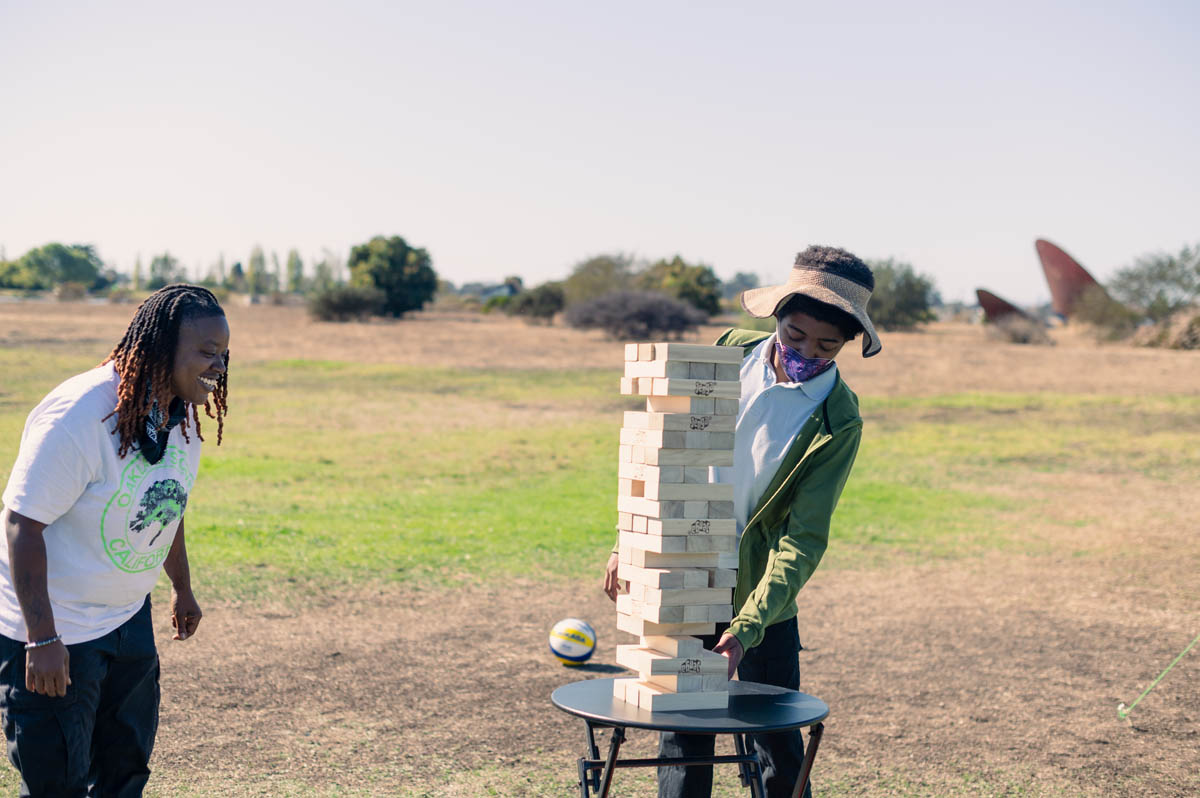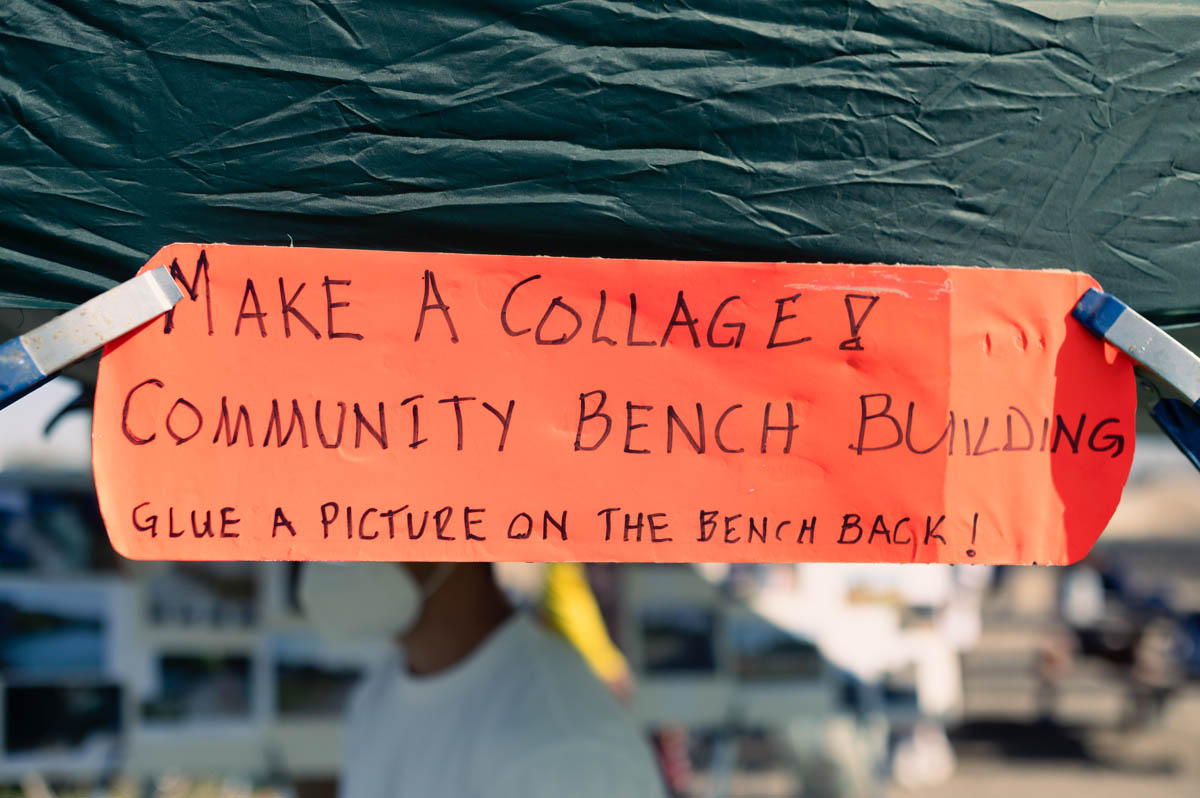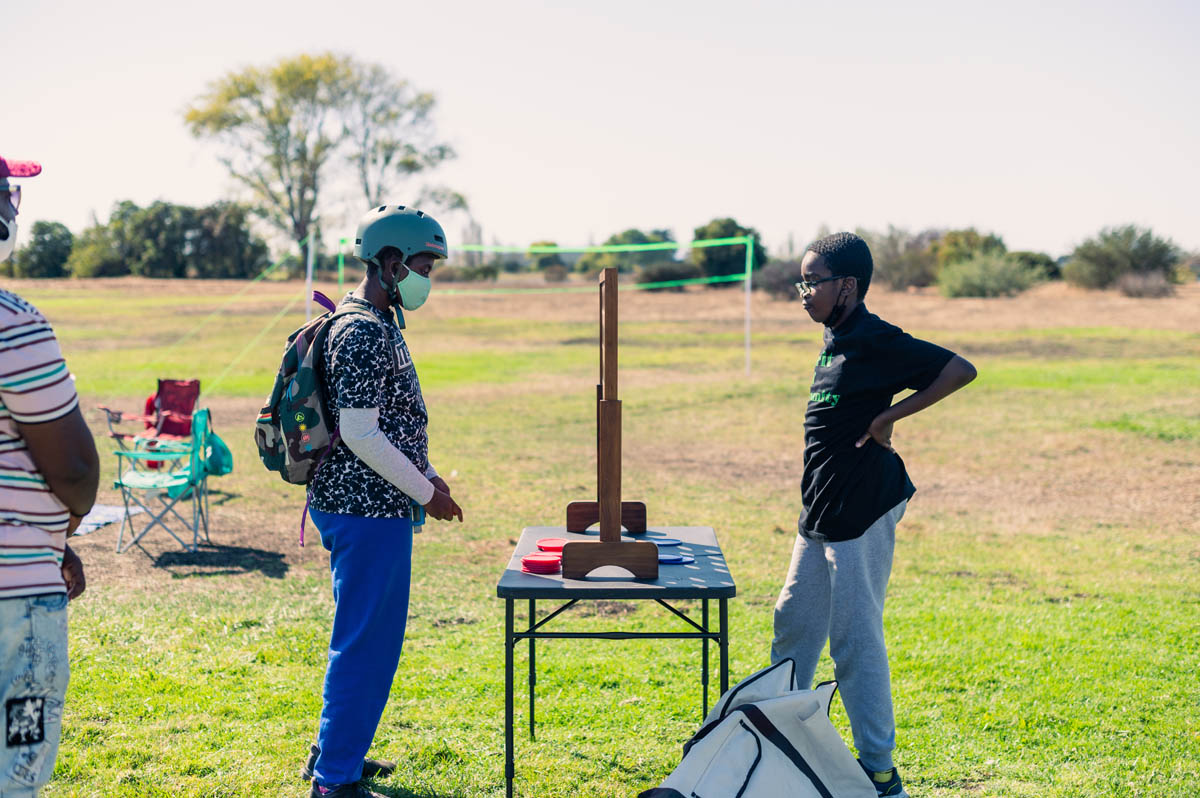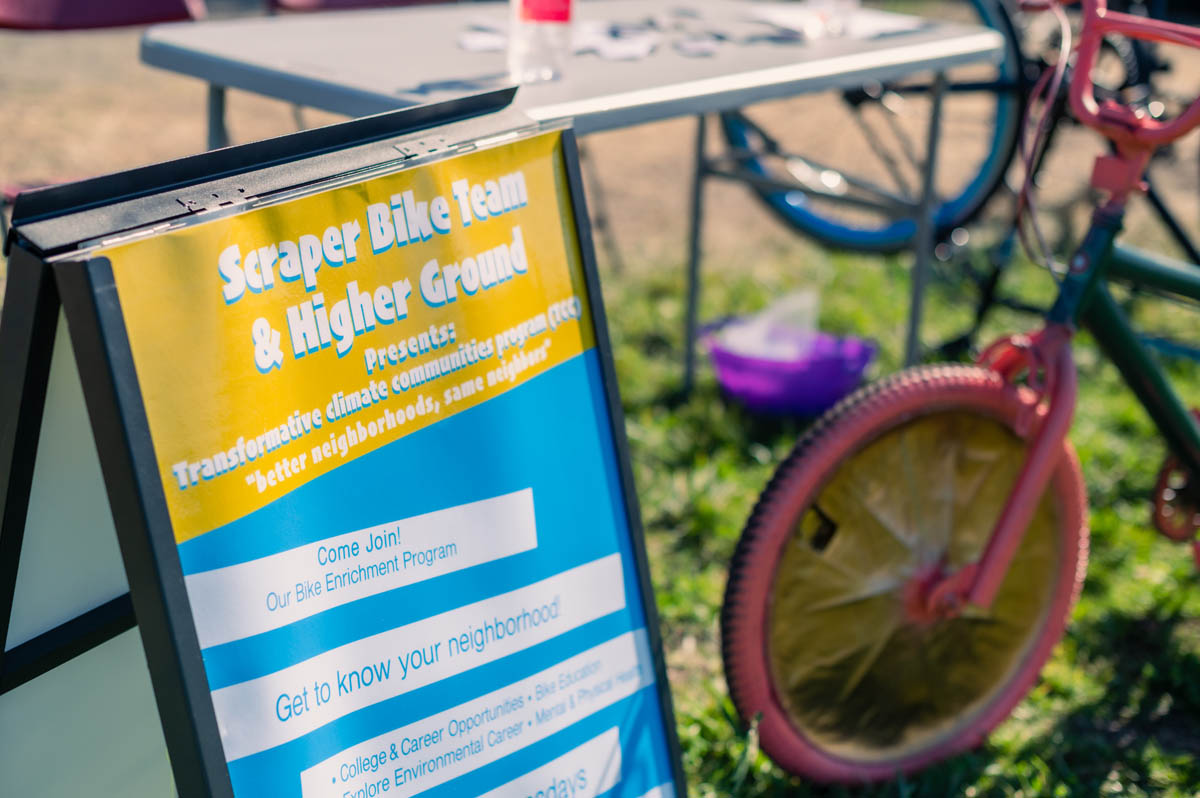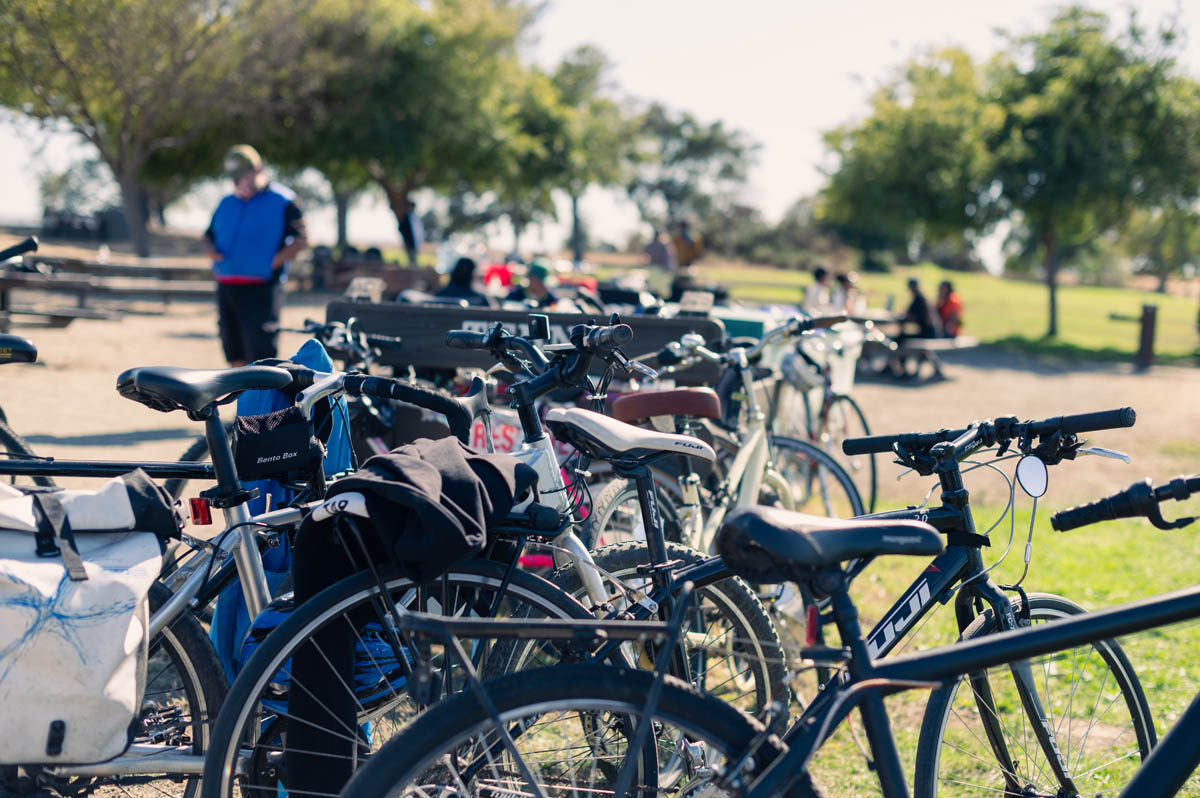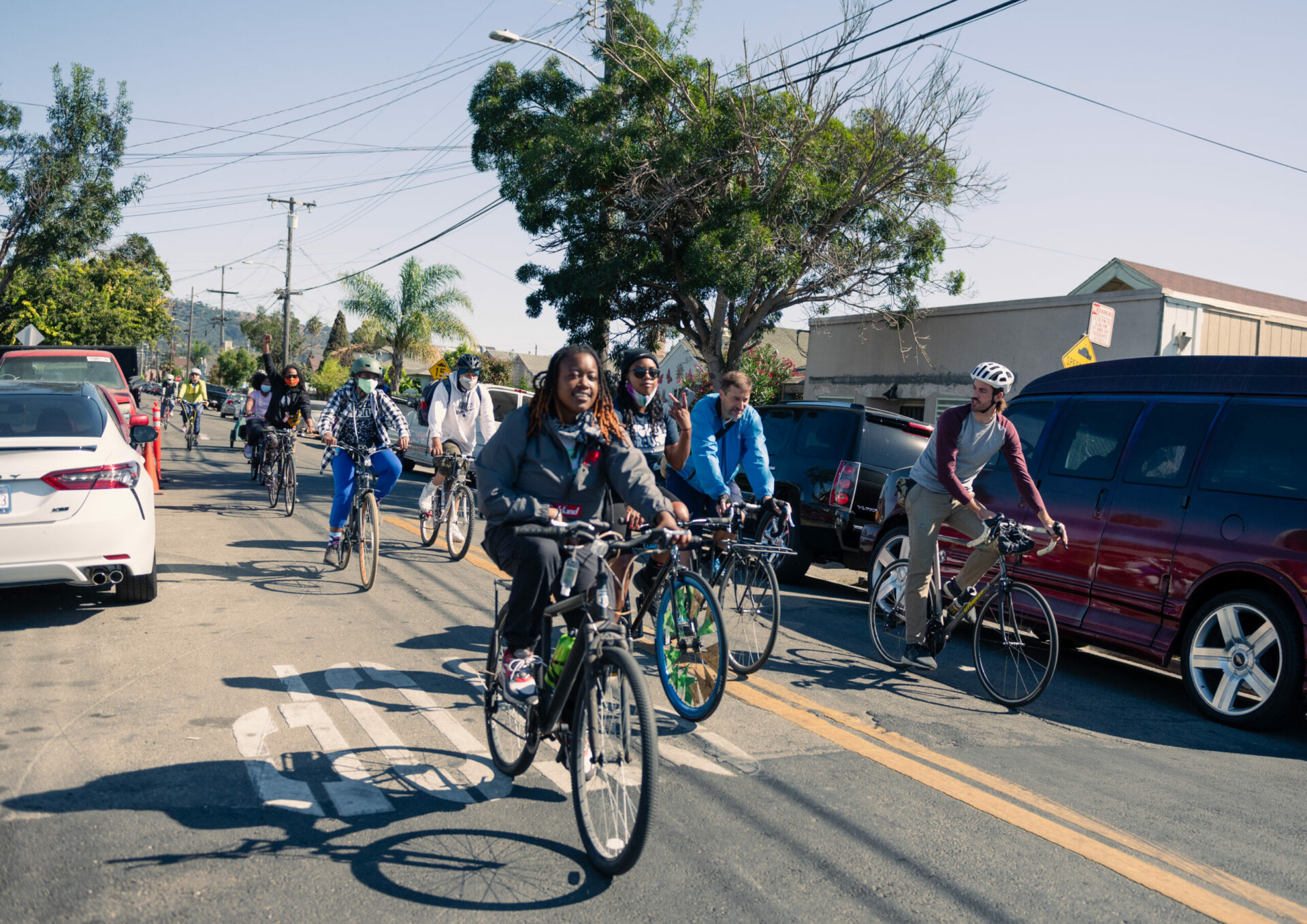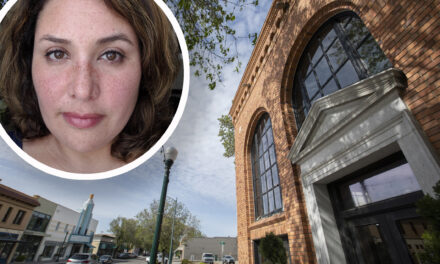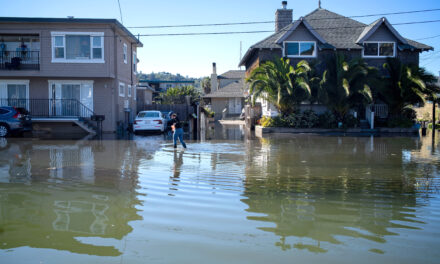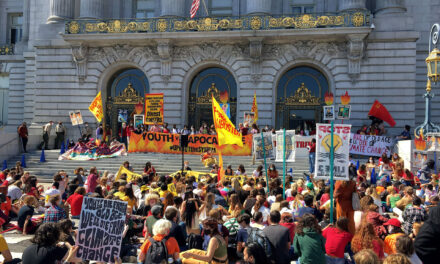Clean Ride by Power the People to Oakland Shore
Keta Price, an East Oakland activist and local planner, finds it difficult to get to the nearest shoreline for a little fresh air and time out on the waterfront. Oakland’s bayshore open spaces lie hidden in corners of the giant shipping and trucking landscape of the port, or between airport runways, military bases, industrial zones and bridge on-ramps. If you don’t have a car to wend your way around the concrete superstructures of eight-lane freeways, rail and BART lines, or other obstacles between the city and the Bay, shoreline parks and public open spaces can seem pretty inaccessible.
“We want to stitch East Oakland neighborhoods to the shore and increase public transit access,” says Price, who just launched a project to do just that called Power the People: Martin Luther King Jr. Shoreline Access Study.
Living and working on resilience projects around the Oakland Coliseum area for years, Price has an intimate knowledge of the landscape and people who live there. Before COVID restrictions suspended service, Price had been impressed with the free Broadway B shuttle, which made a clean, quiet loop with zero emissions to key destinations along Oakland’s main street.
“We want to do the same thing, connect a transit center deep in the neighborhood to parks like Martin Luther King Shoreline with a fare-free clean air bus,” she says. The East Oakland Collective’s Power the People is engaging Black and POC residents in activities aimed at identifying which clean mobility options would best support them in accessing the shoreline, she says.
On Clean Air Day on October 9, for example, a group of people from the community rode bikes from East Oakland to the shoreline; helped pick up trash from the marsh, creek banks and bayshore; and celebrated with food, music, art and other activities (see slideshow below).
One focal point of Power the People is to explore the feasibility of creating a new fare-free zero emissions bus route along 73rd Ave. The study will also explore other clean mobility options such as biking, walking and skating to bring East Oakland residents from 94603, 94605 and 94621 zip codes to the Martin Luther King Jr. Shoreline park. Support for the community-led access study is coming from cap-and-trade funding and the Oakland Department of Transportation.
Price begins to talk fast when she gets going on all her ideas for helping Black and POC residents reclaim and restore shoreline spaces, and “explore culturally relevant recreation on the shore.” She mentions the Bay Trail, Doolittle Drive, resilience and equity hubs, transportation corridors and greenways. “Our neighborhoods need secure access to and from the shoreline in the face of sea level rise, that’s how the transportation infrastructure is tied to climate adaptation,” she says.
Price also points to increased visits to local urban parks and open space during the pandemic. “East Bay Parks recognizes this need, and we have their ear,” says Price, talking about her other endeavors through the East Oakland collective to promote events on the shore that highlight Black culture and educate the community about ecology. “We need to decriminalize Black folks enjoying and holding activities in green spaces,” she says.
Clean Air Day Bike to the Shore Slide Show ~ Photos Lonny Meyer
Other Recent Posts
ESA
ESA is an environmental engineering firm that does restoration and resilience projects.
Gleaning in the Giving Season
The practice of collecting food left behind in fields after the harvest is good for the environment and gives more people access to produce.
New Study Teases Out Seawall Impacts
New models suggest that sea walls and levees provide protection against flooding and rising seas with little effect on surrounding areas.
Oakland High Schoolers Sample Local Kayaking
The Oakland Goes Outdoors program gives low-income students a chance to kayak, hike, and camp.
Growing Better Tomatoes with Less Water
UC Santa Cruz researchers find the highly-desired ‘Early Girl’ variety yields more tomatoes under dry-farmed conditions.
Santa Clara Helps Homeless Out of Harm’s Way
A year after adopting a controversial camping ban, Valley Water is trying to move unsheltered people out of the cold and rain.
The Race Against Runoff
San Francisco redesigns drains, parks, permeable pavements and buildings to keep stormwater out of the Bay and build flood resilience.
Learning the Art of Burning to Prevent Wildfire
In Santa Rosa’s Pepperwood Preserve, volunteers are learning how controlled fires can clear out natural wildfire fuel before it can spark.
Martinez Residents Want More Than Apologies — They Want Protection
After a 2022 release of toxic dust and a February 2025 fire, people in the northeast Bay town are tired of waiting for safety improvements.
Weaving Fire Protection Out Of What’s Already There
A new Greenbelt Alliance report shows how existing vineyards, grasslands, and managed forests can slow wildfire and save vulnerable homes.
